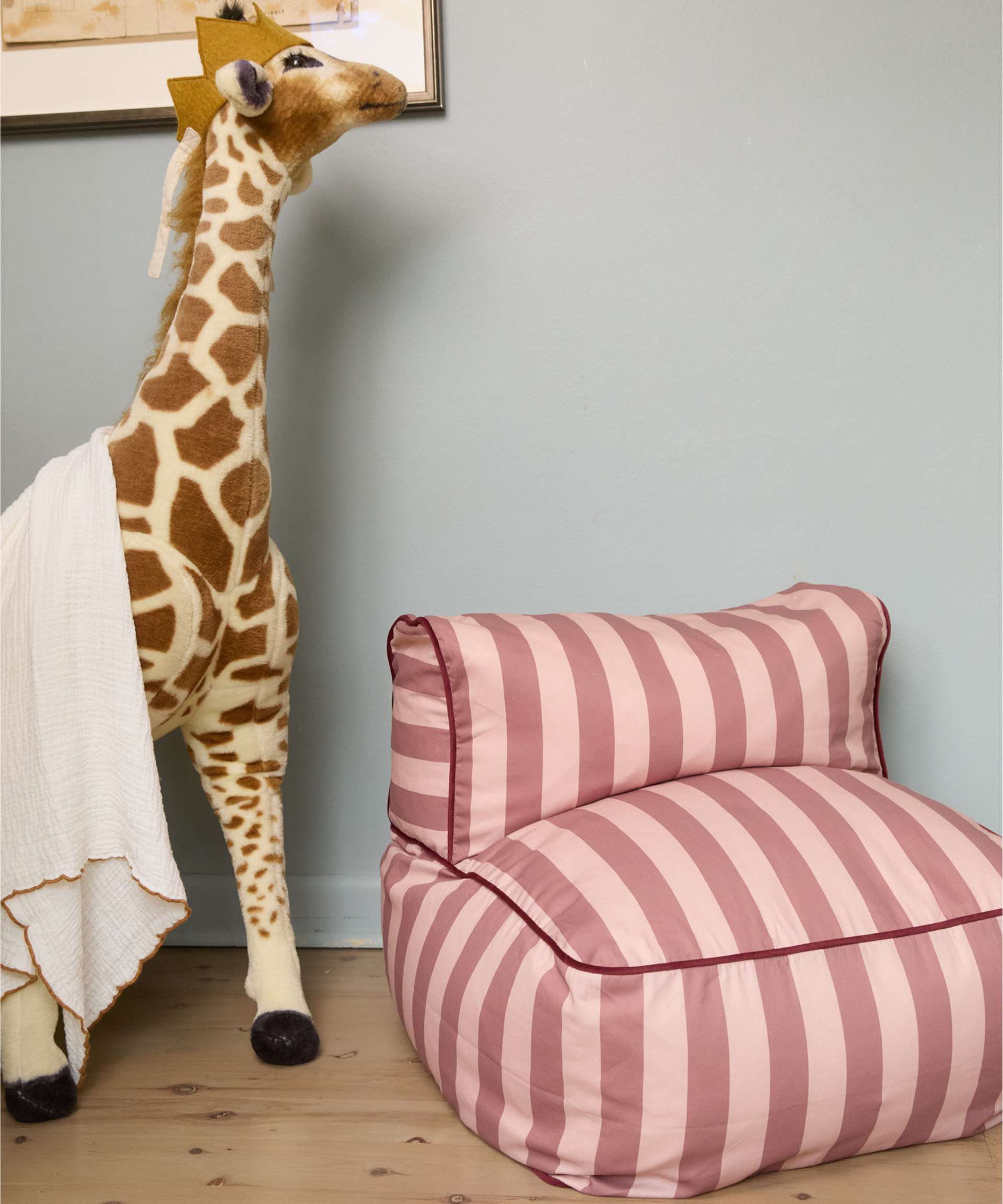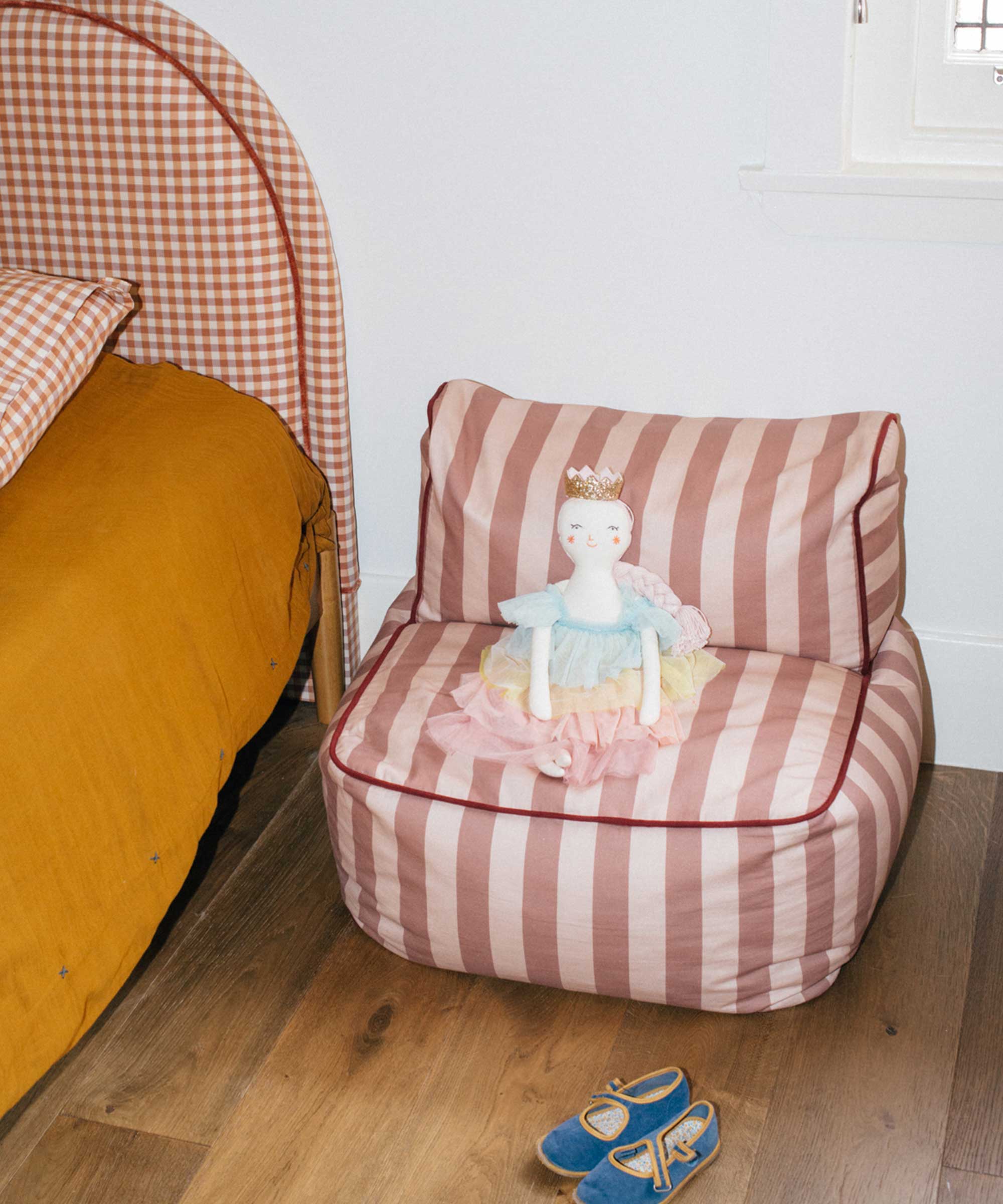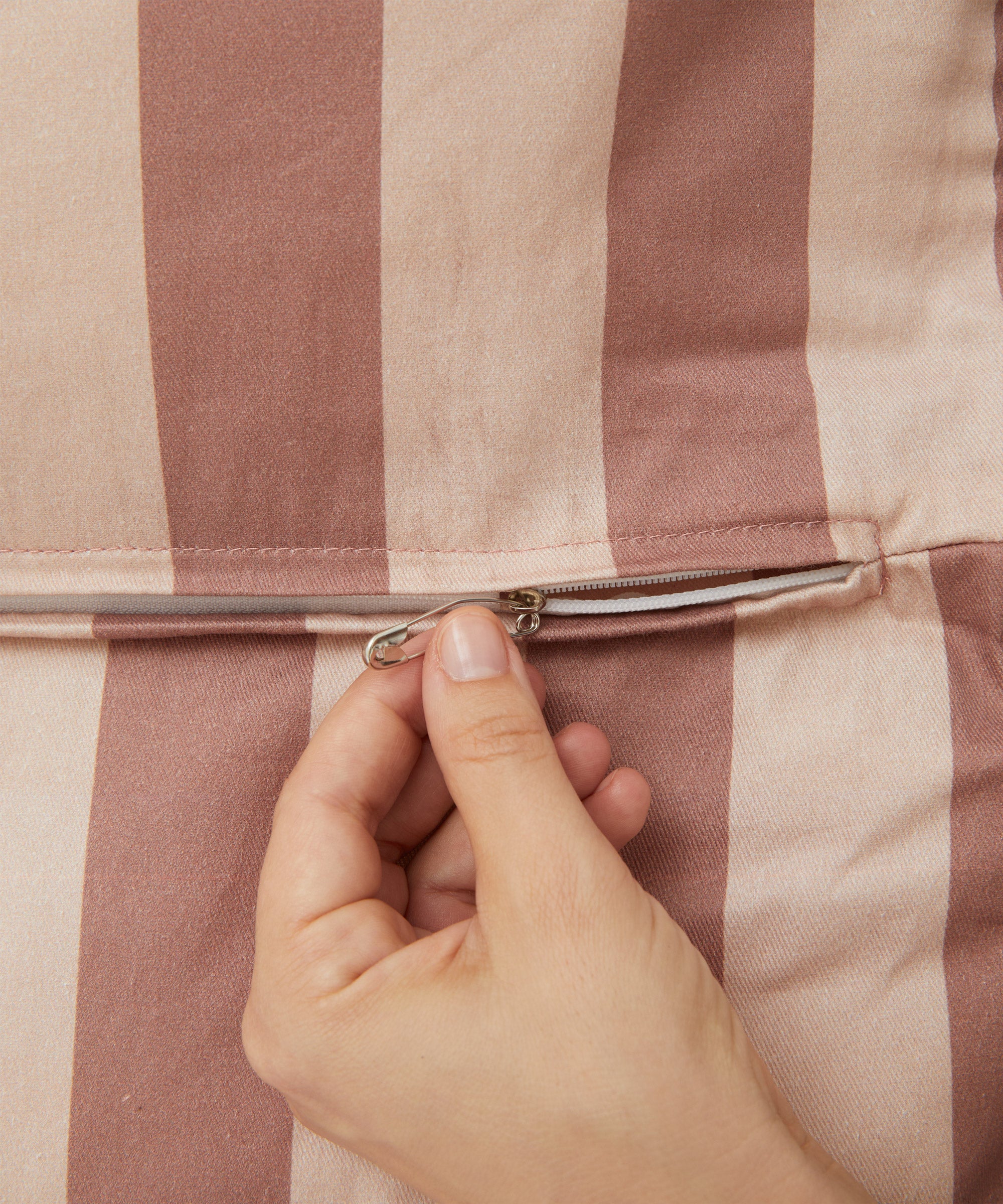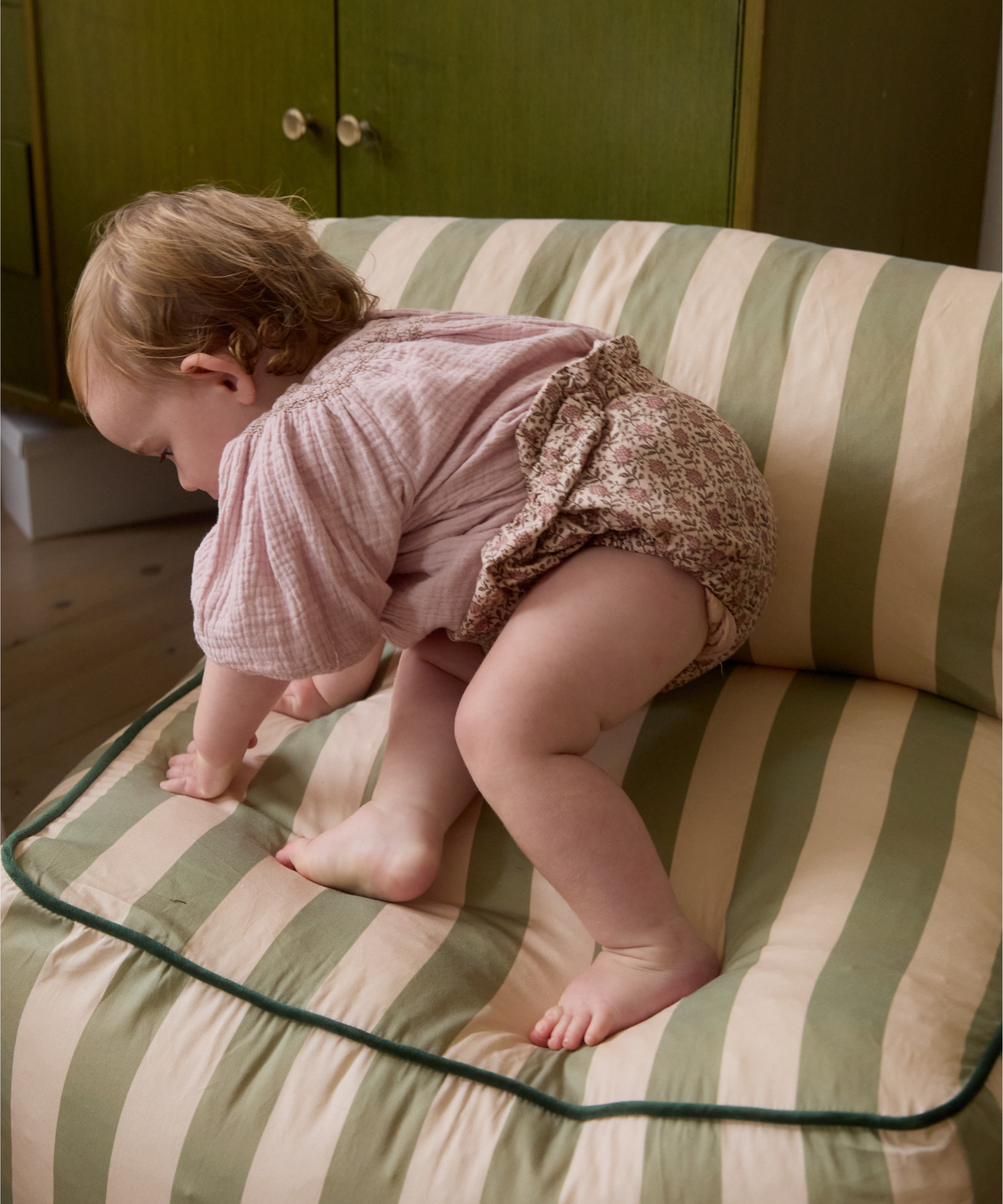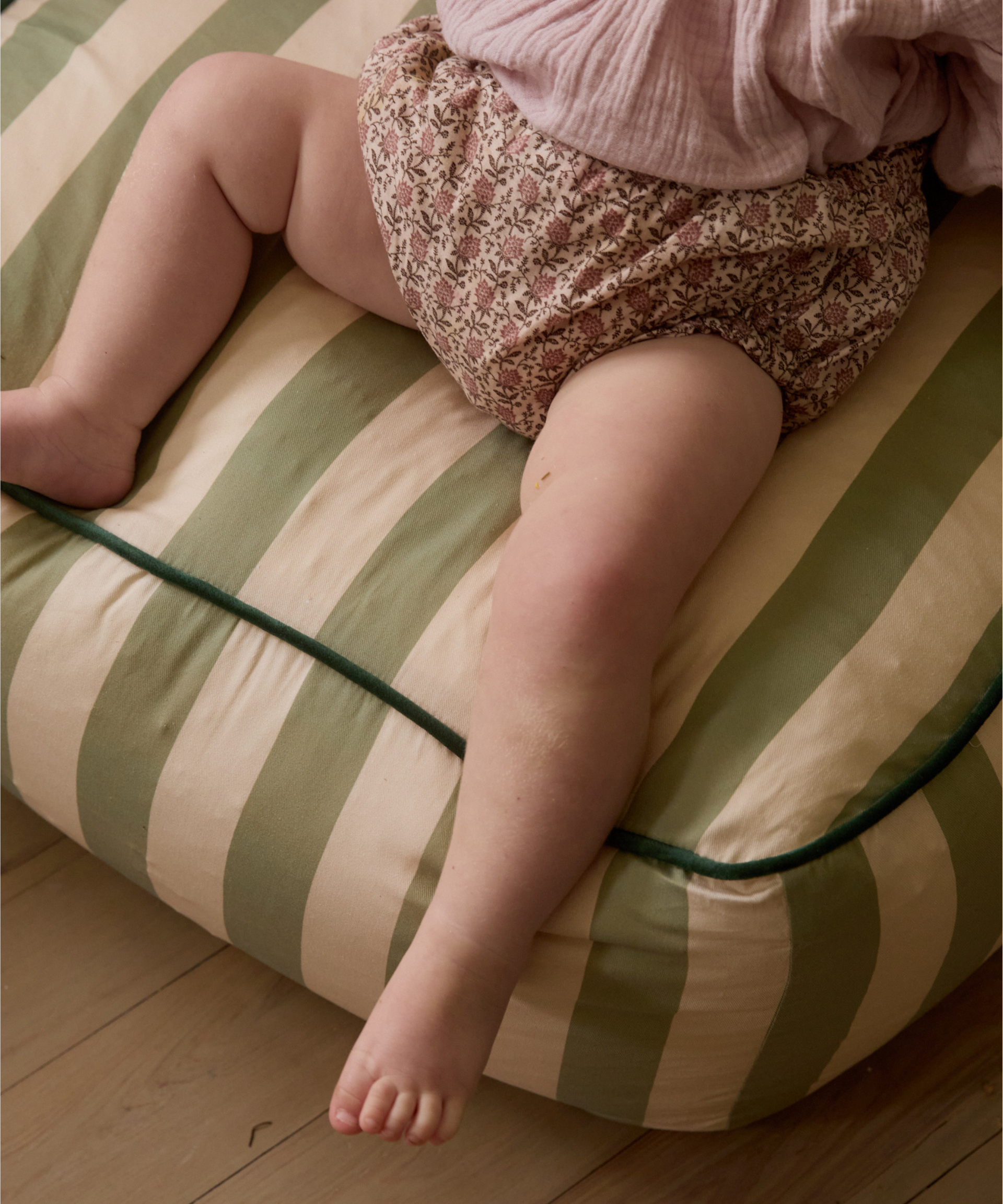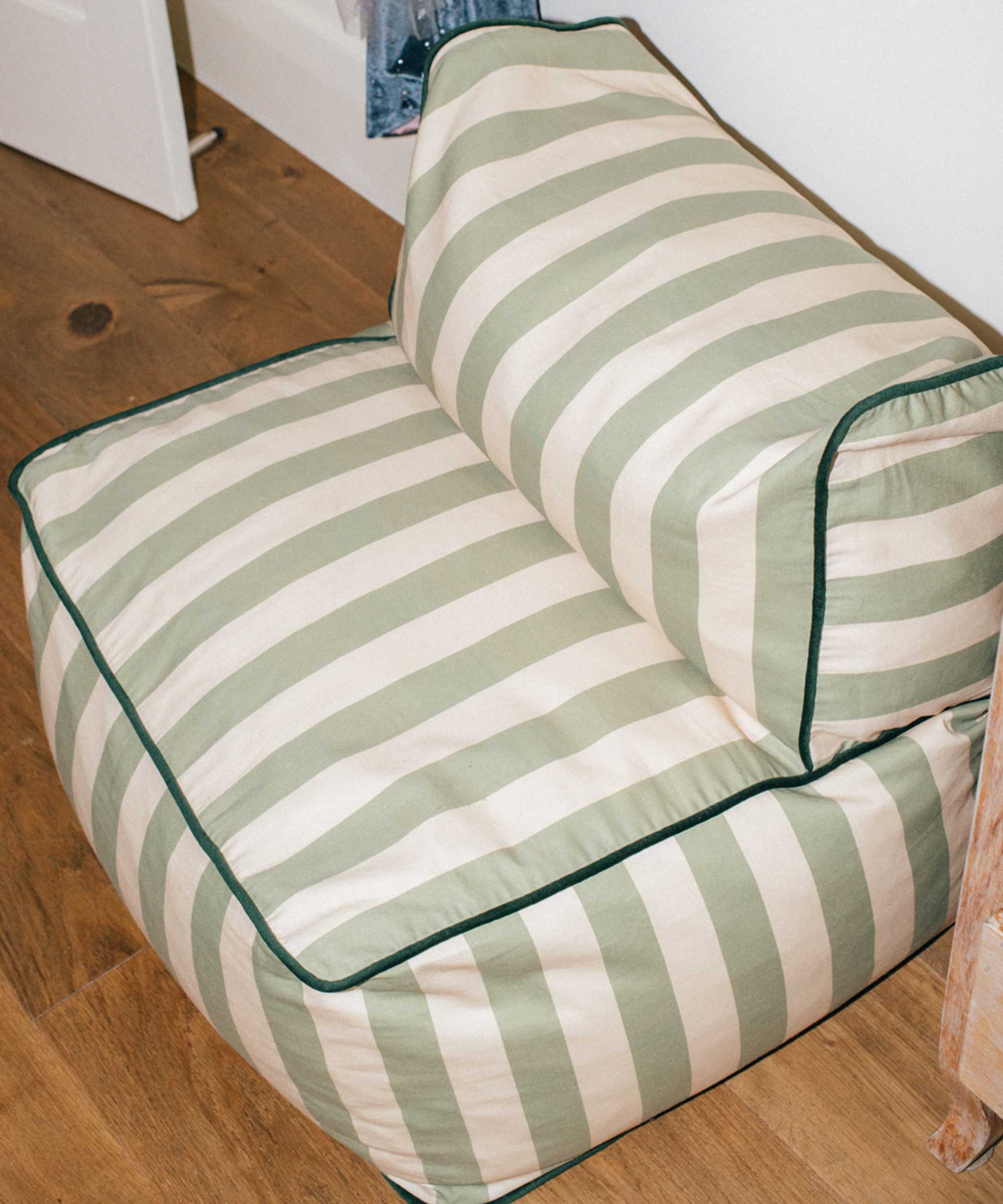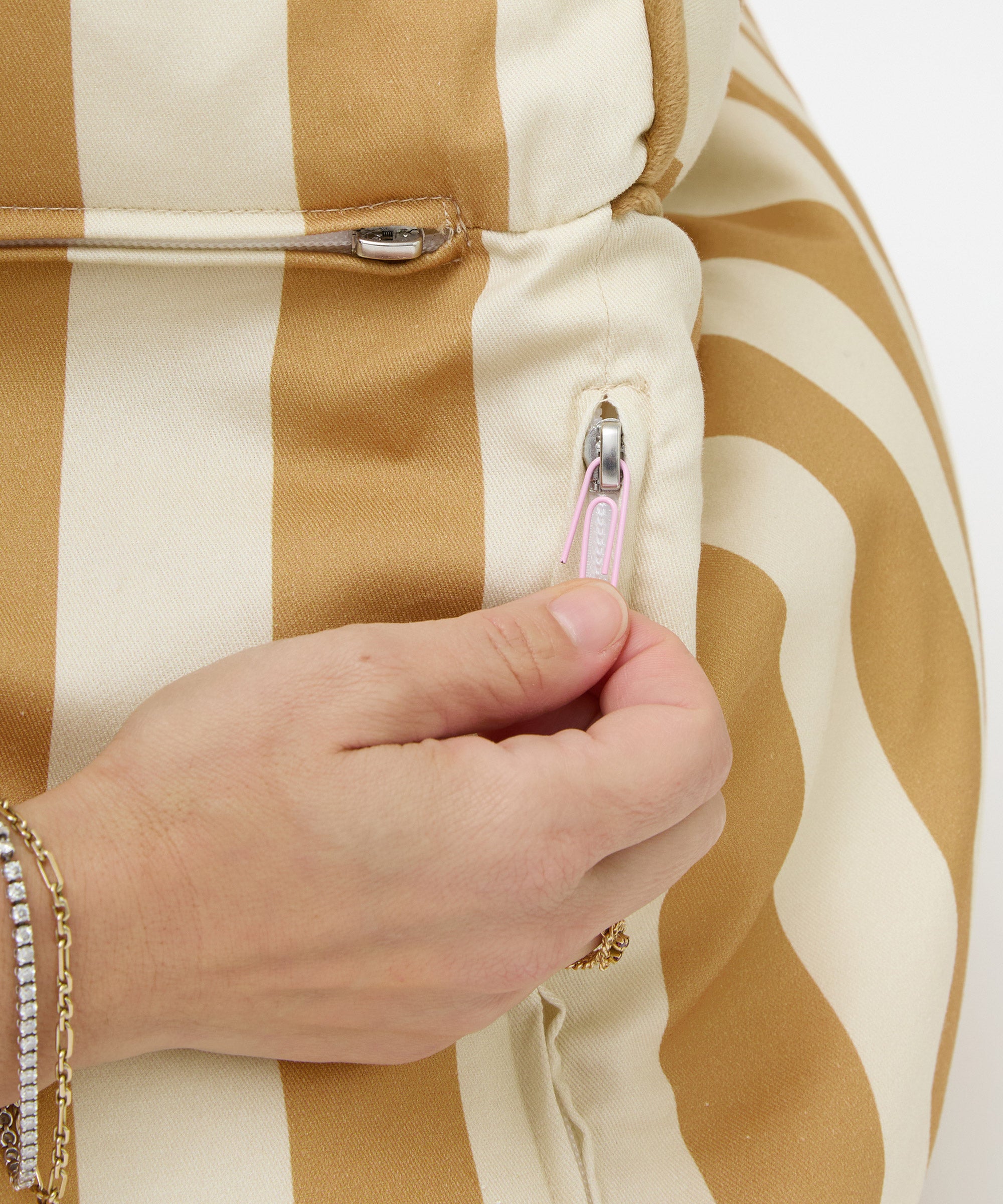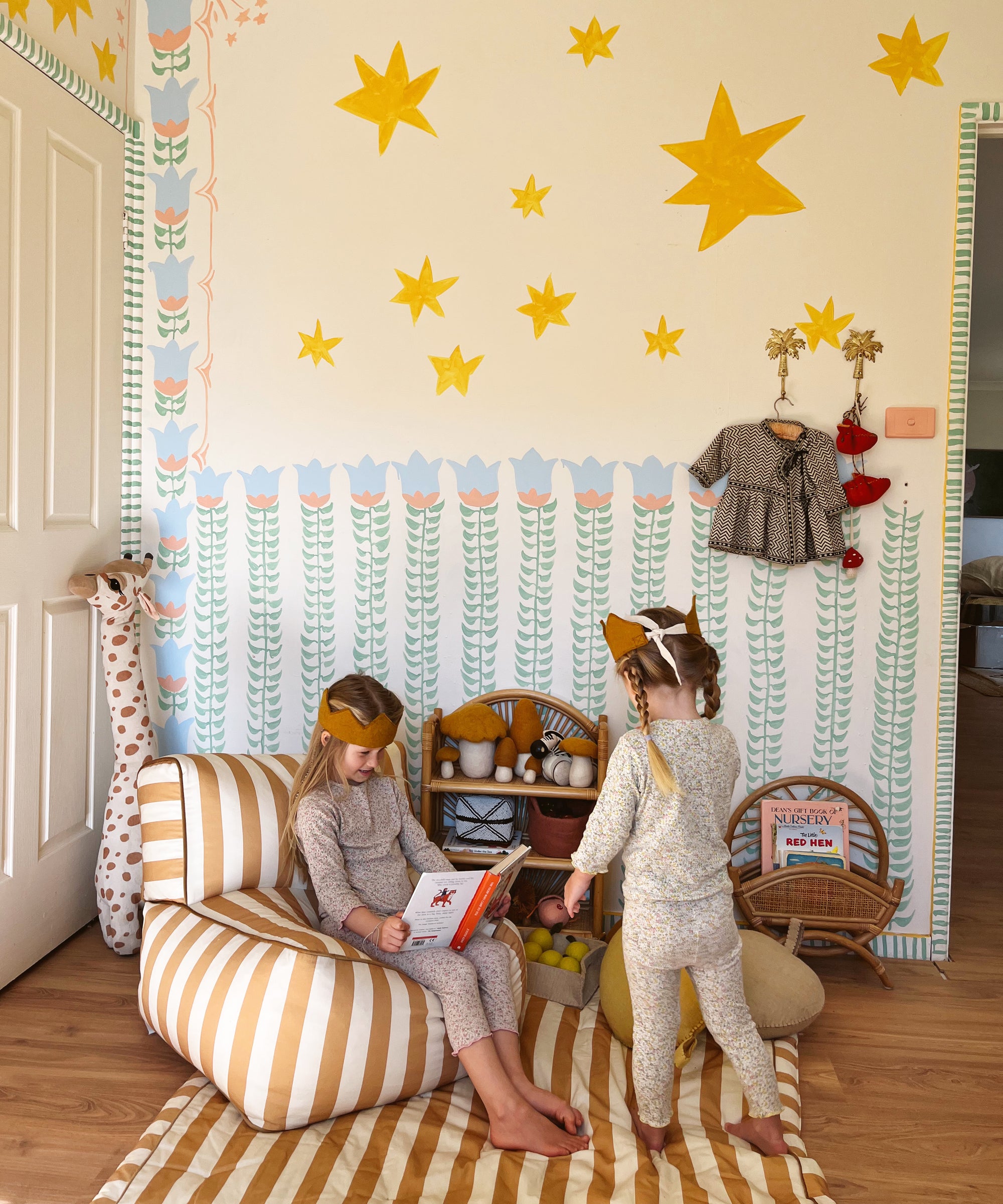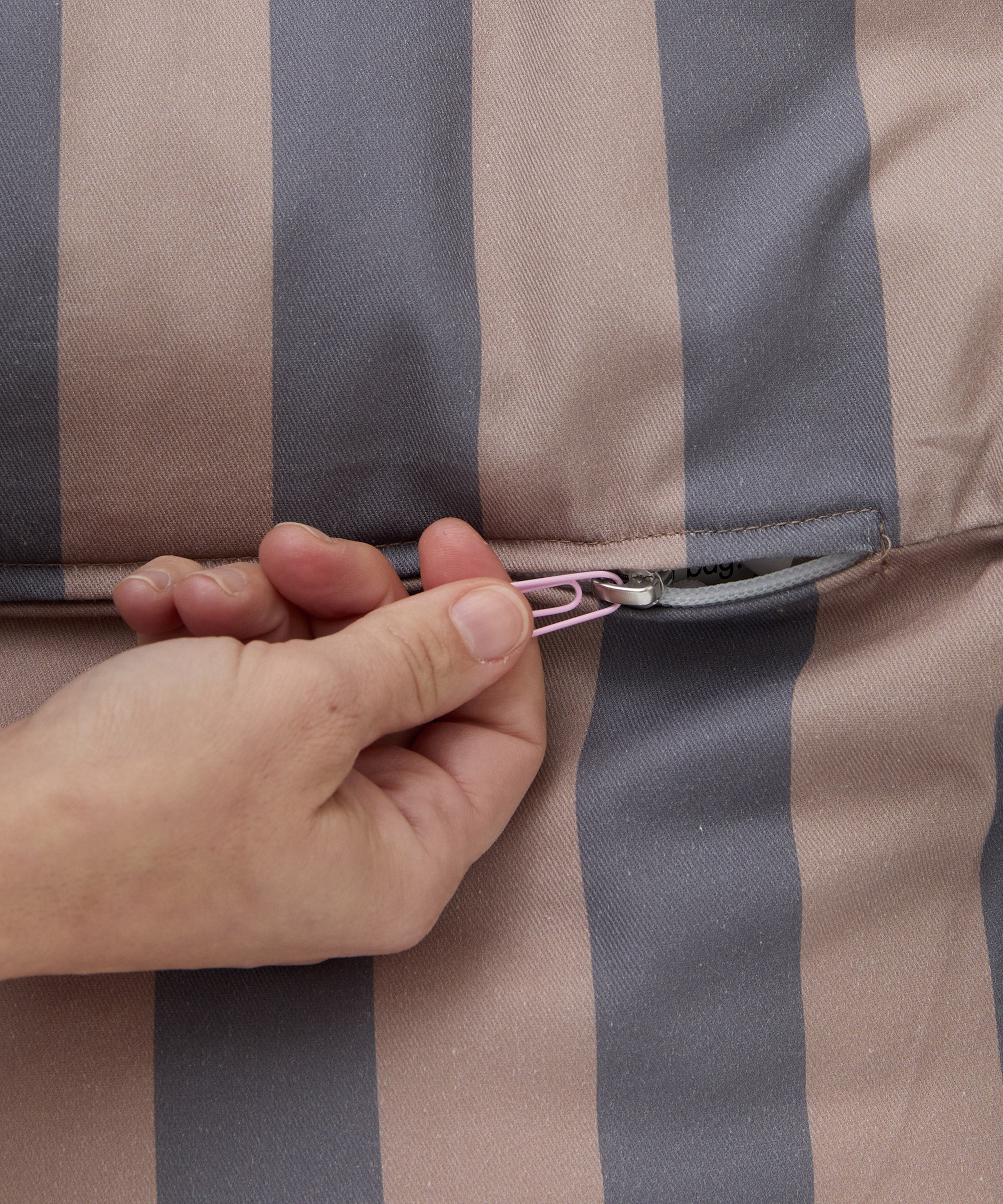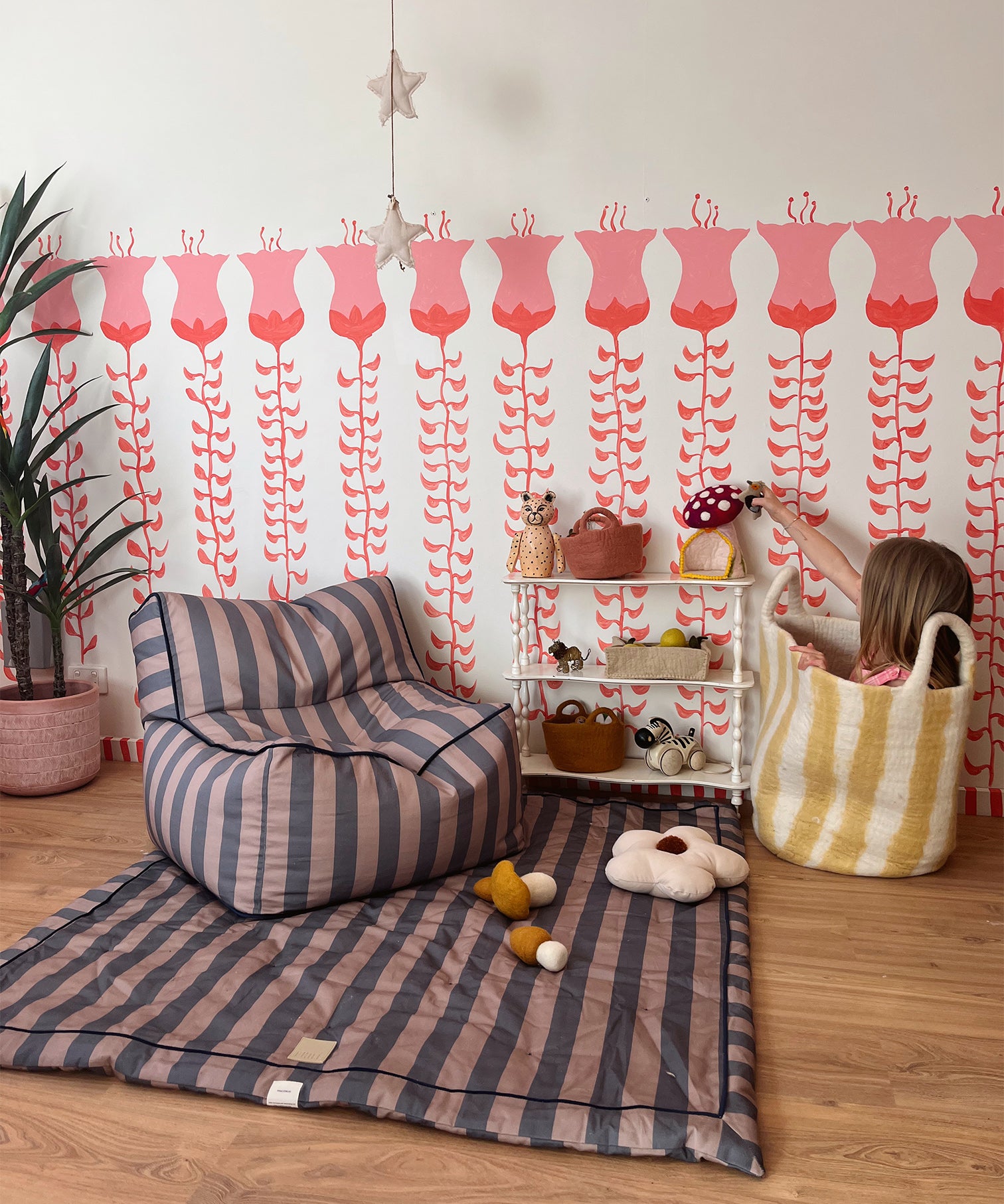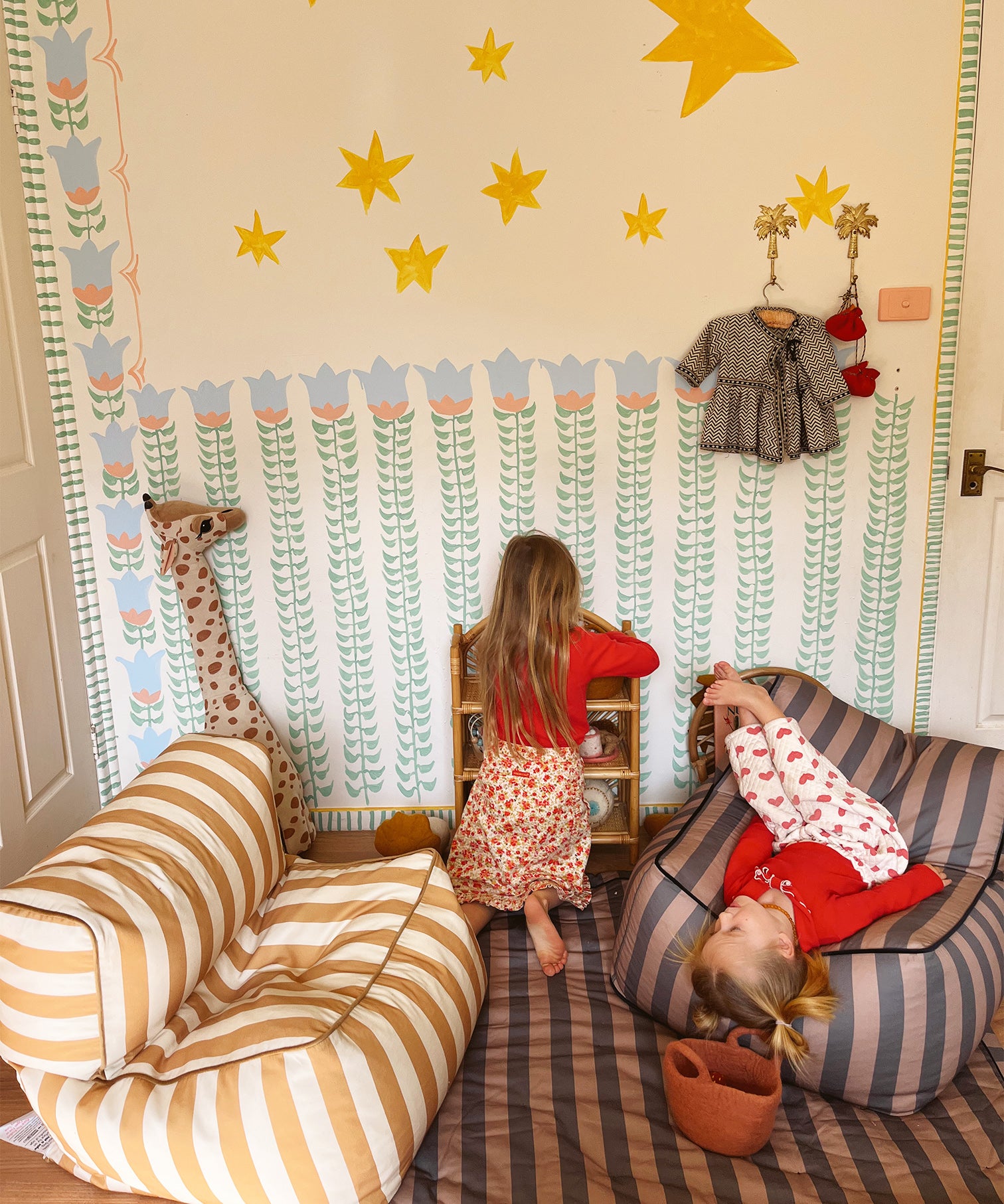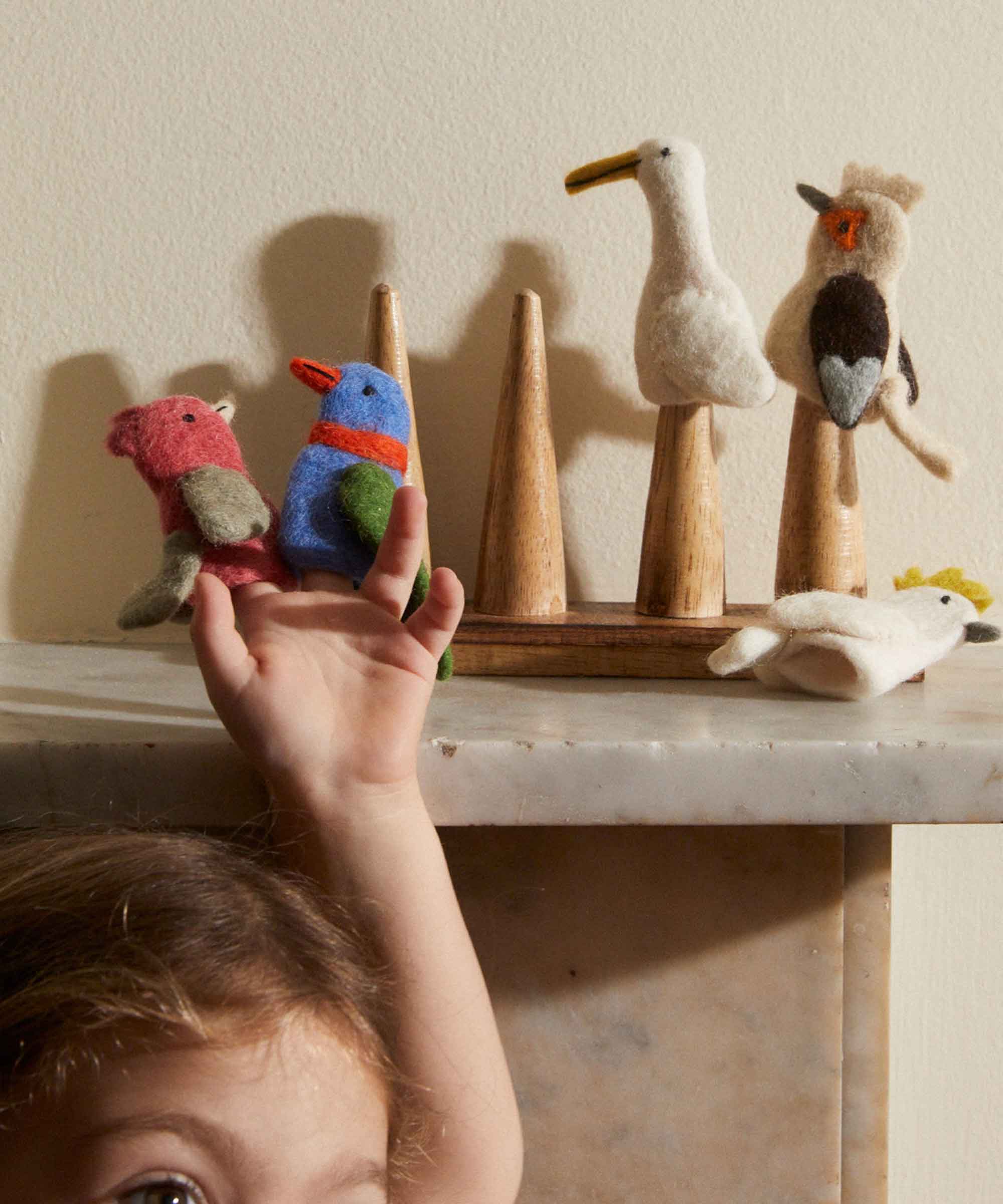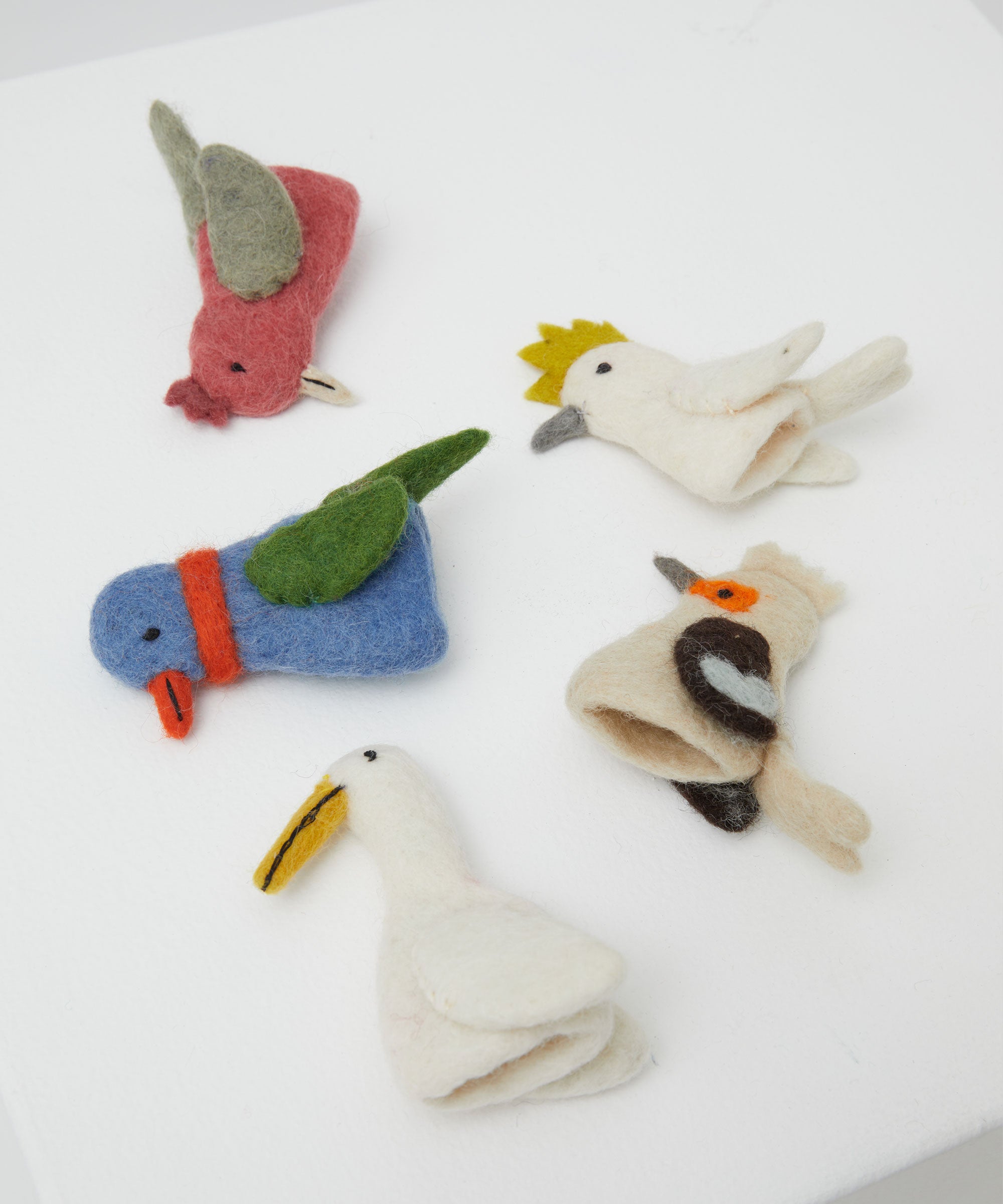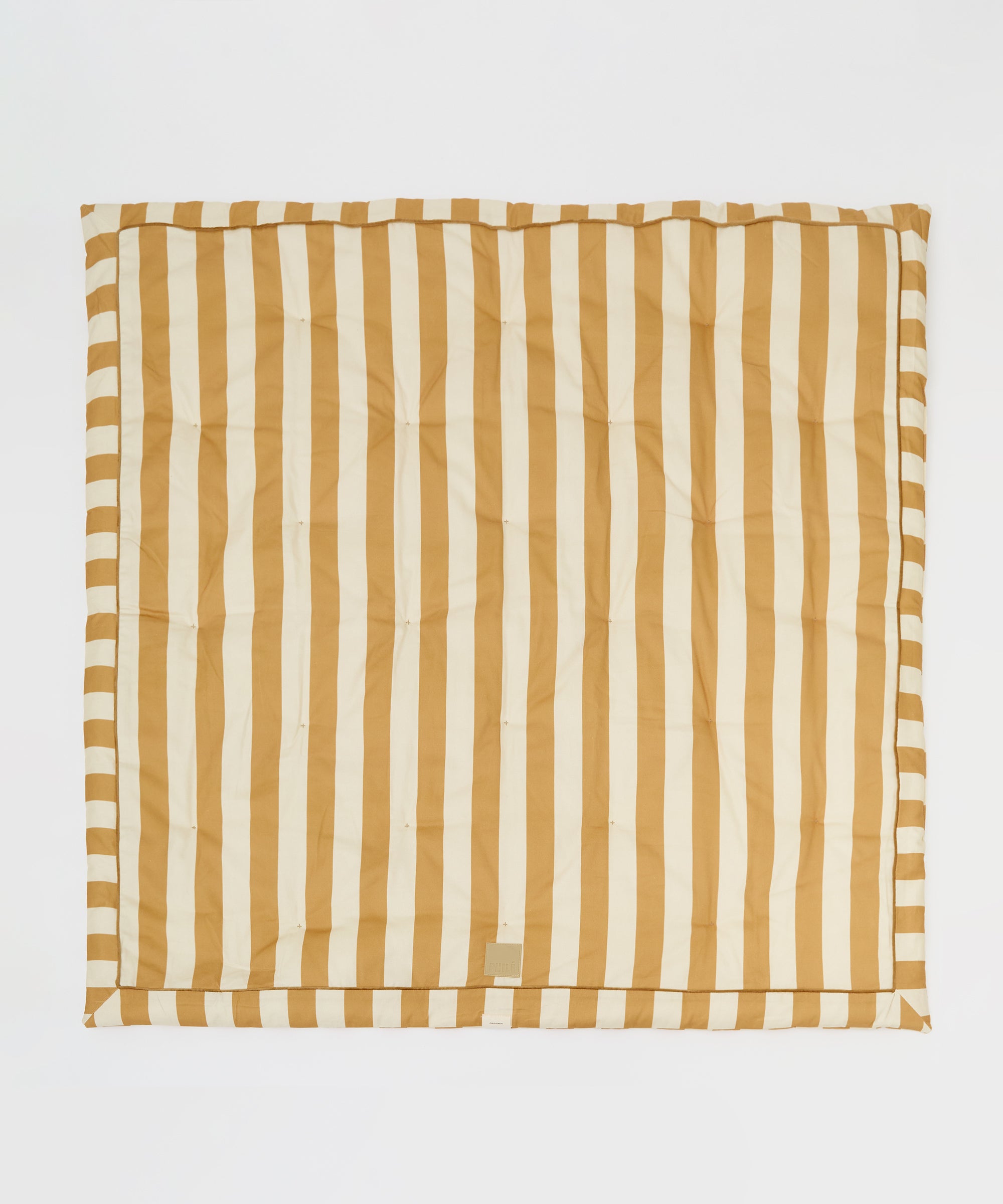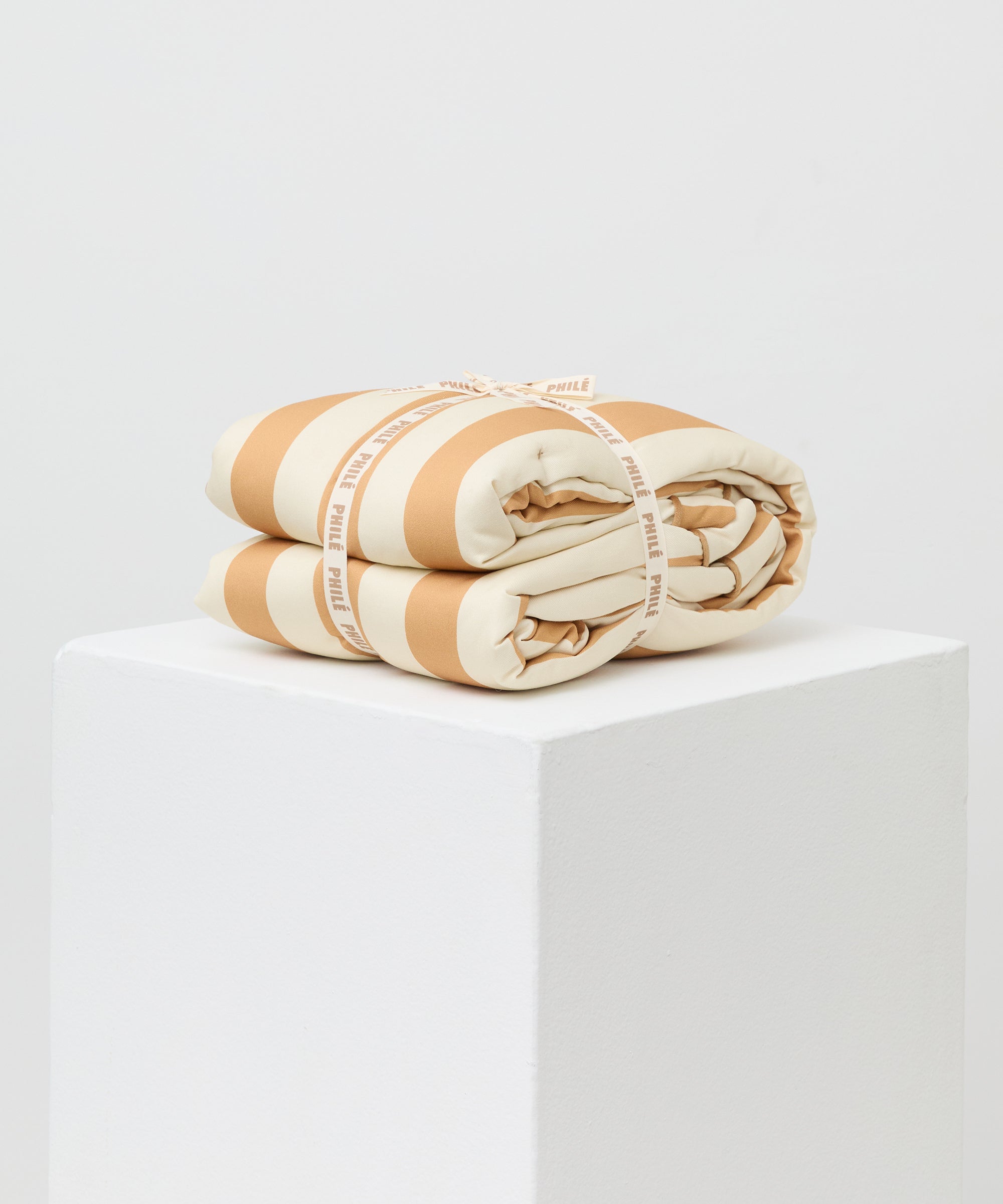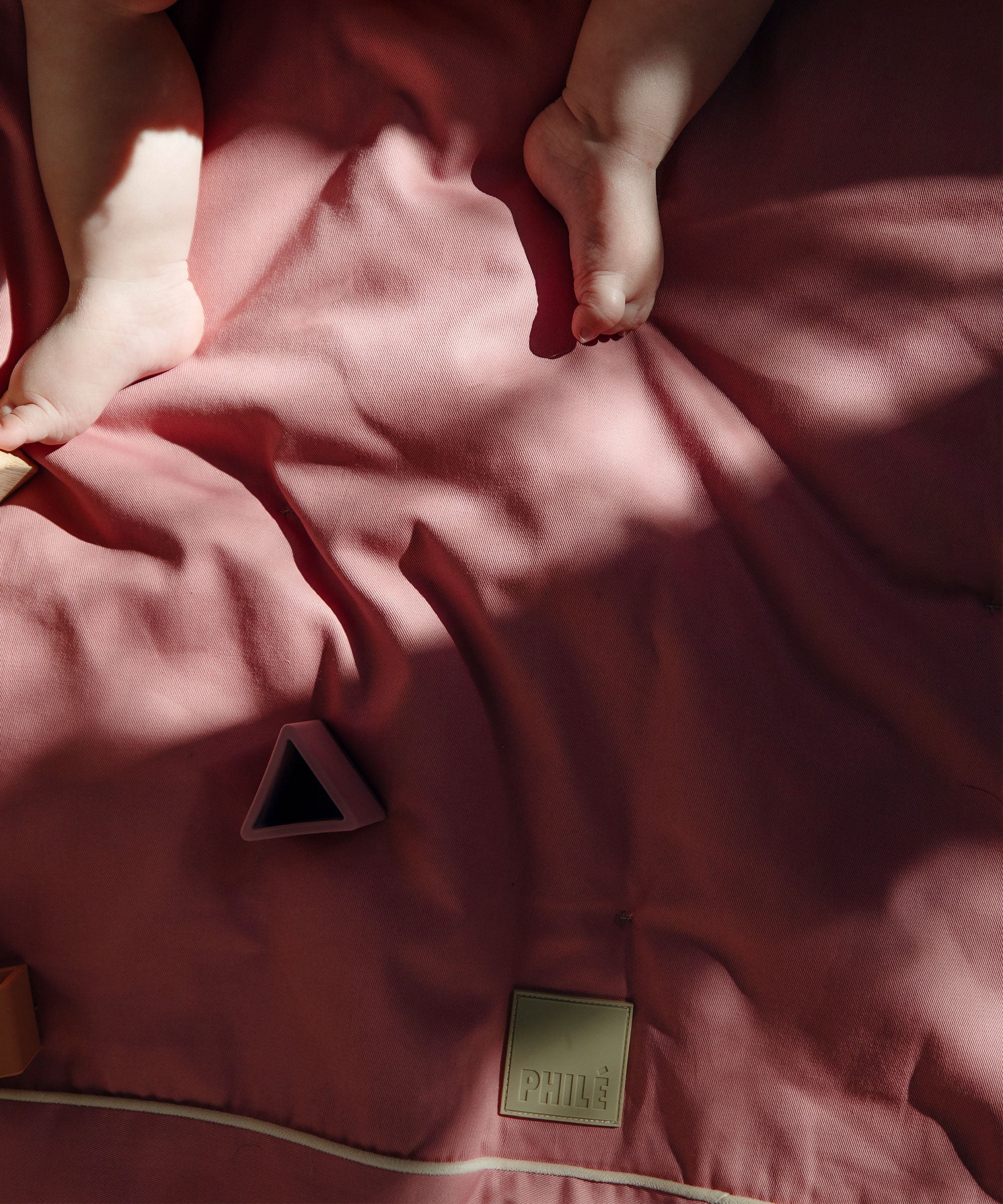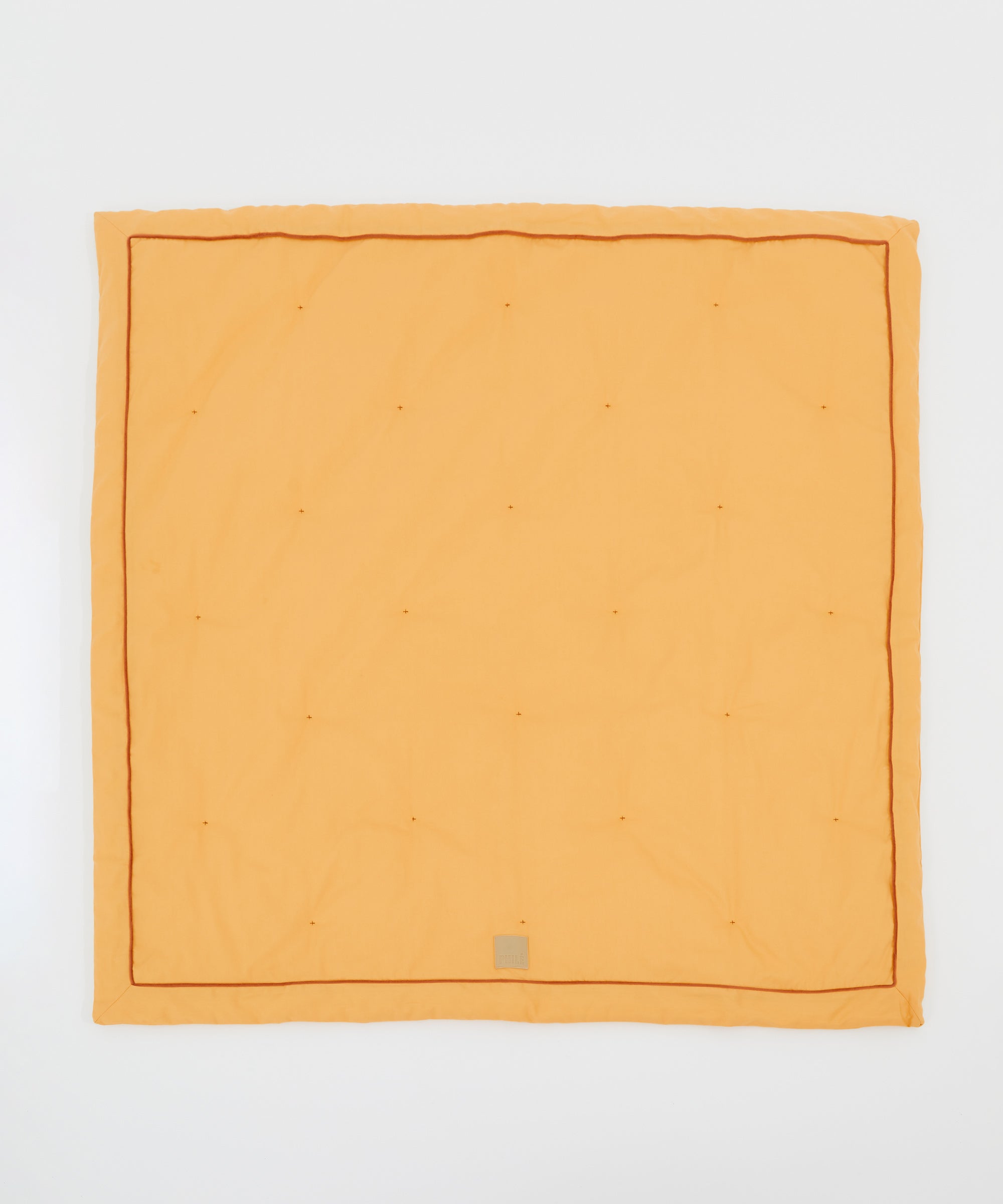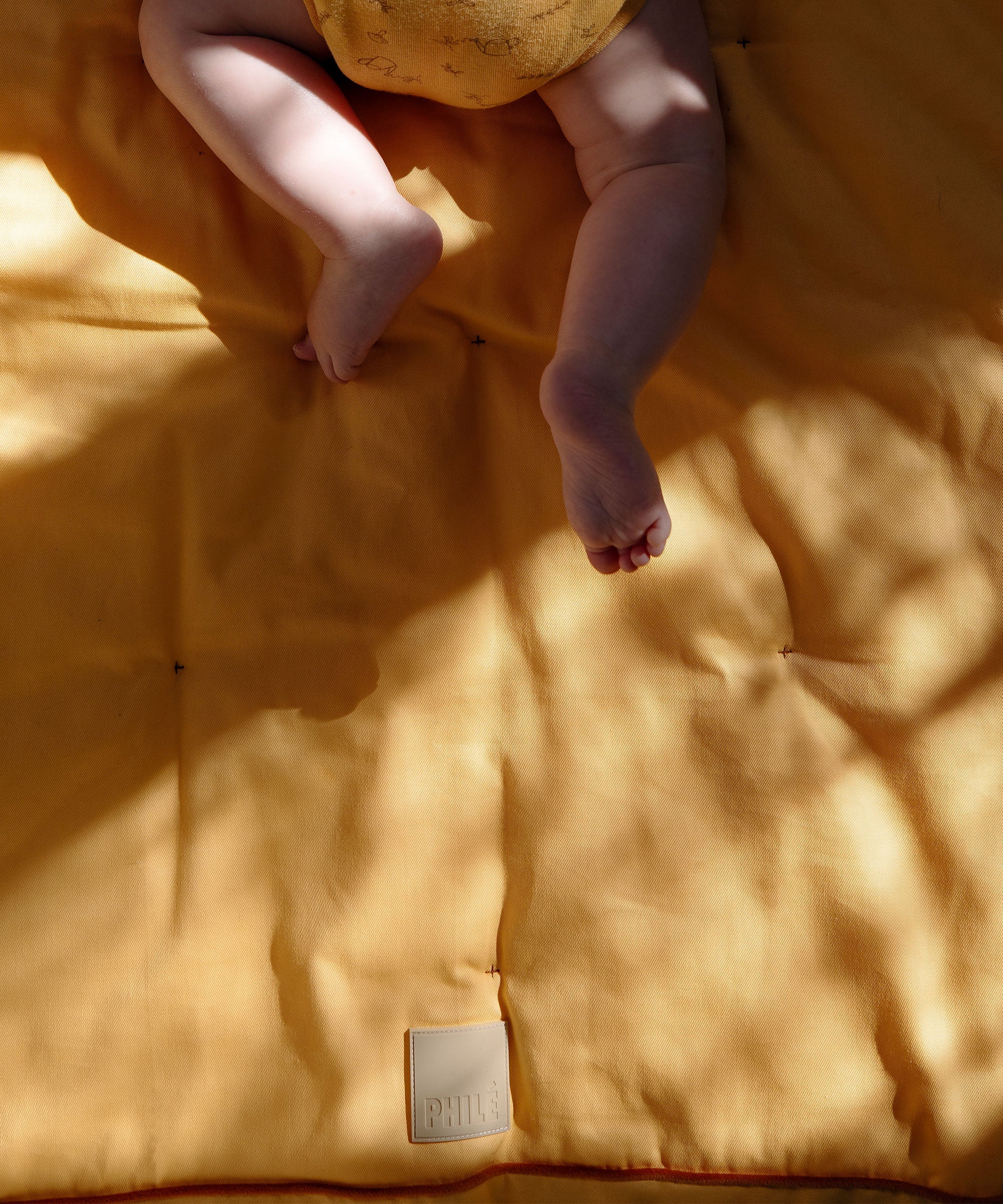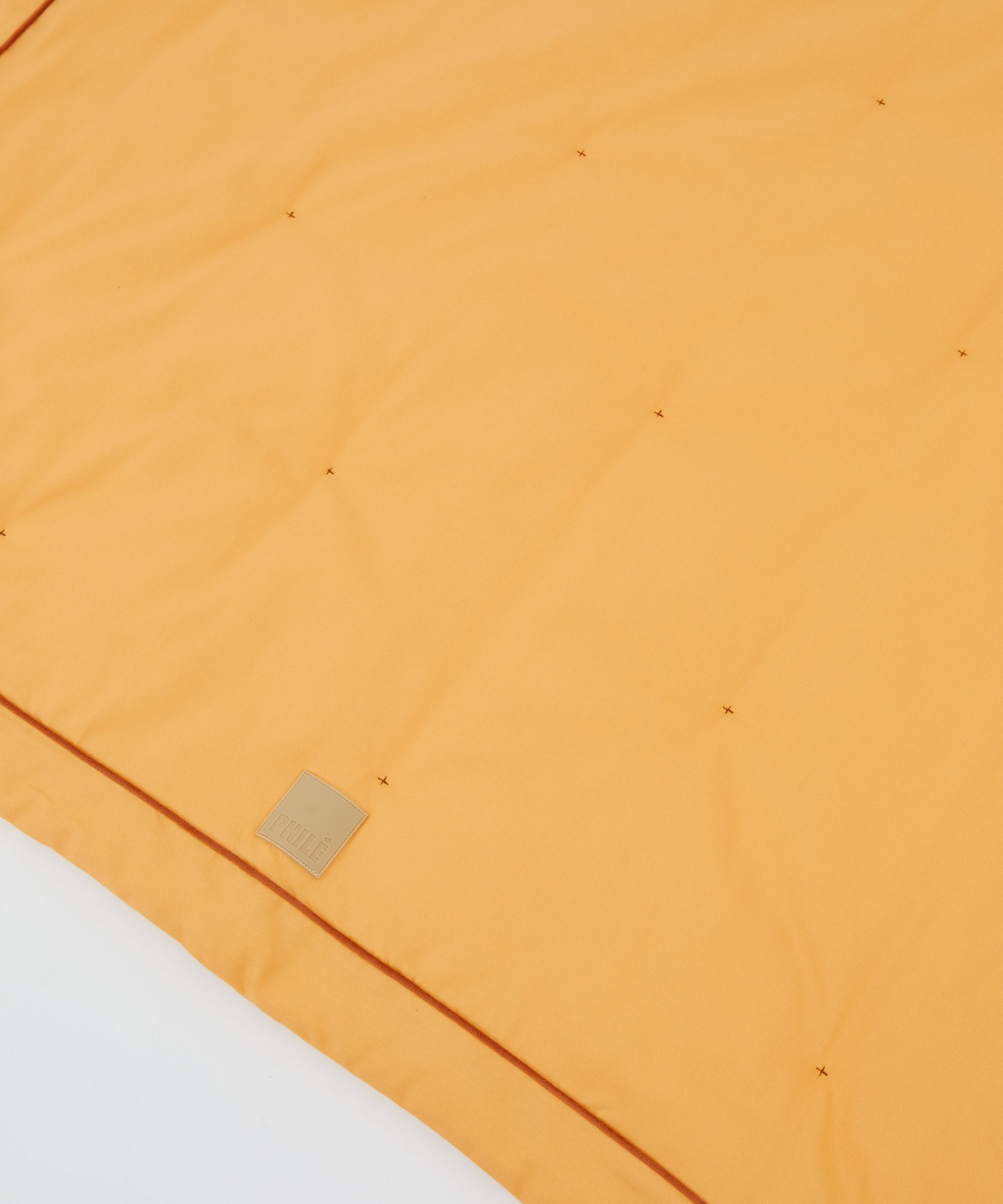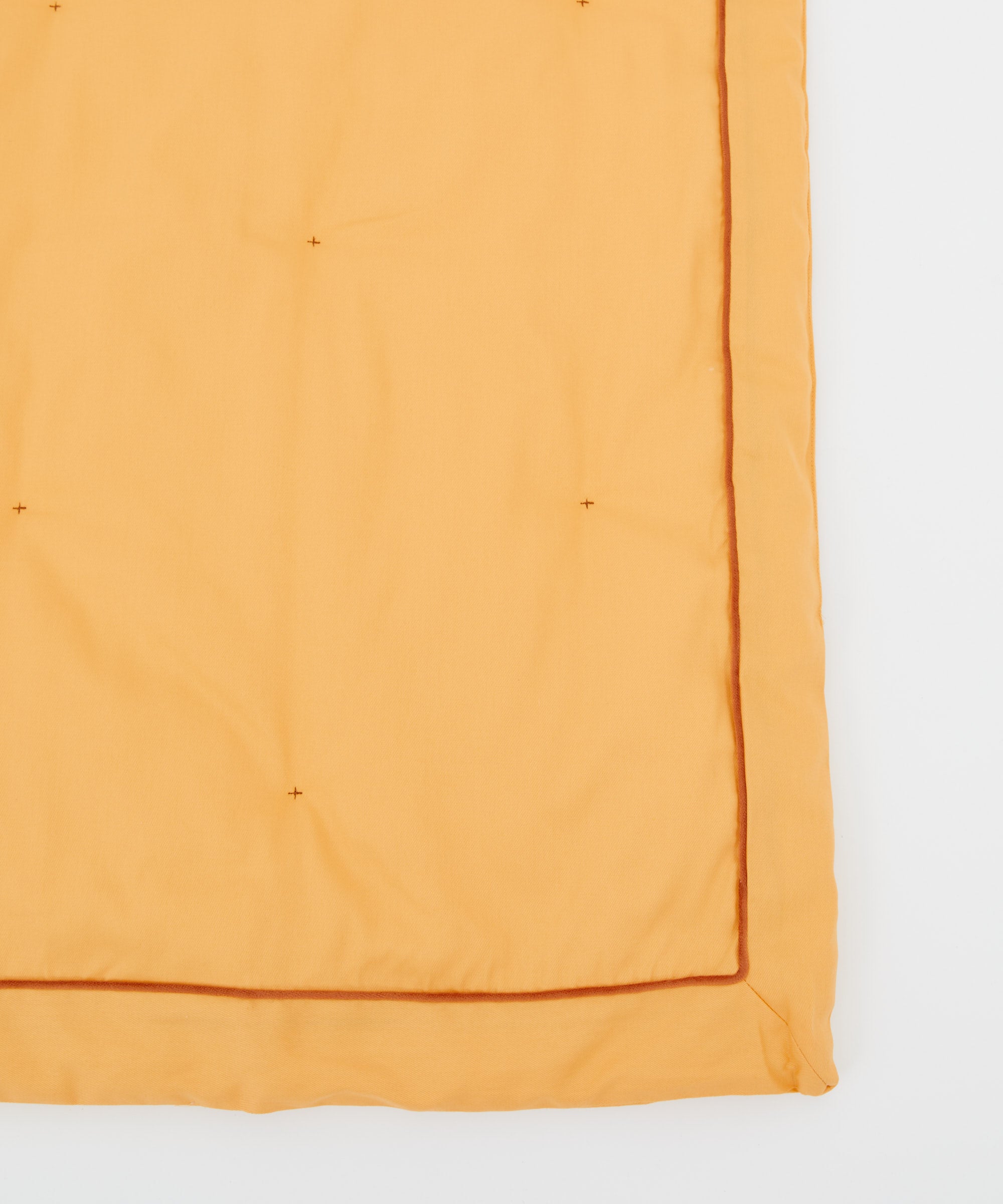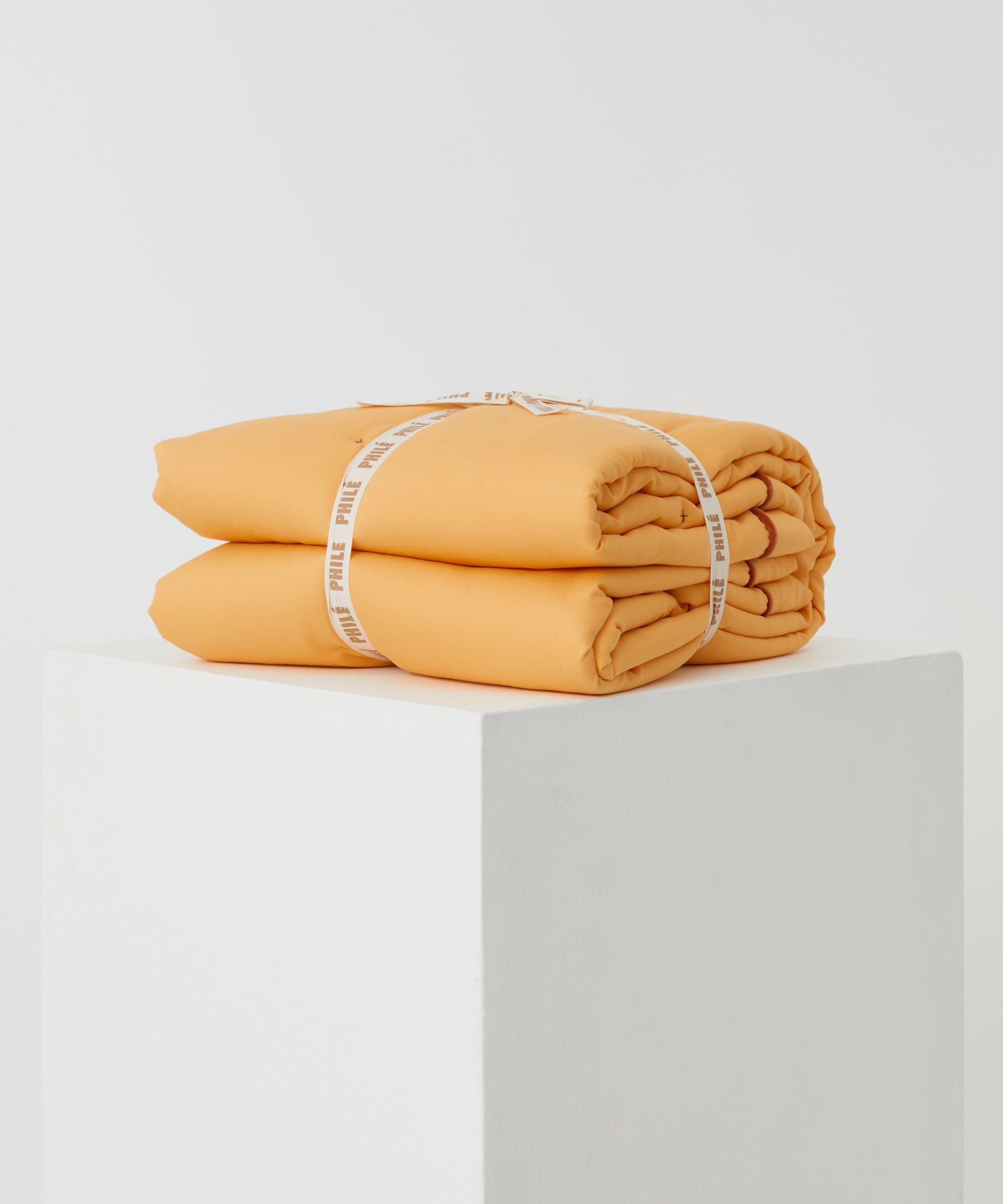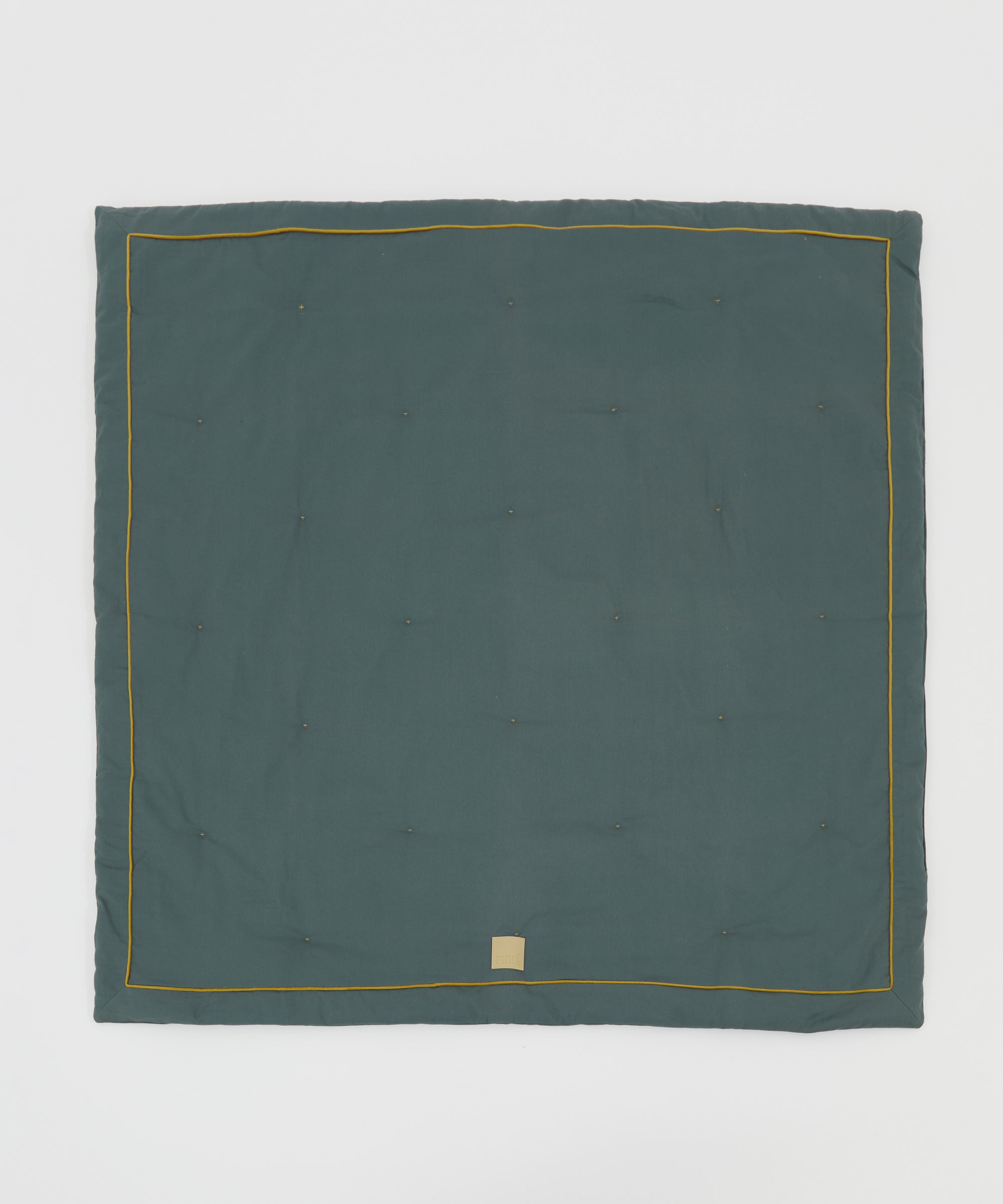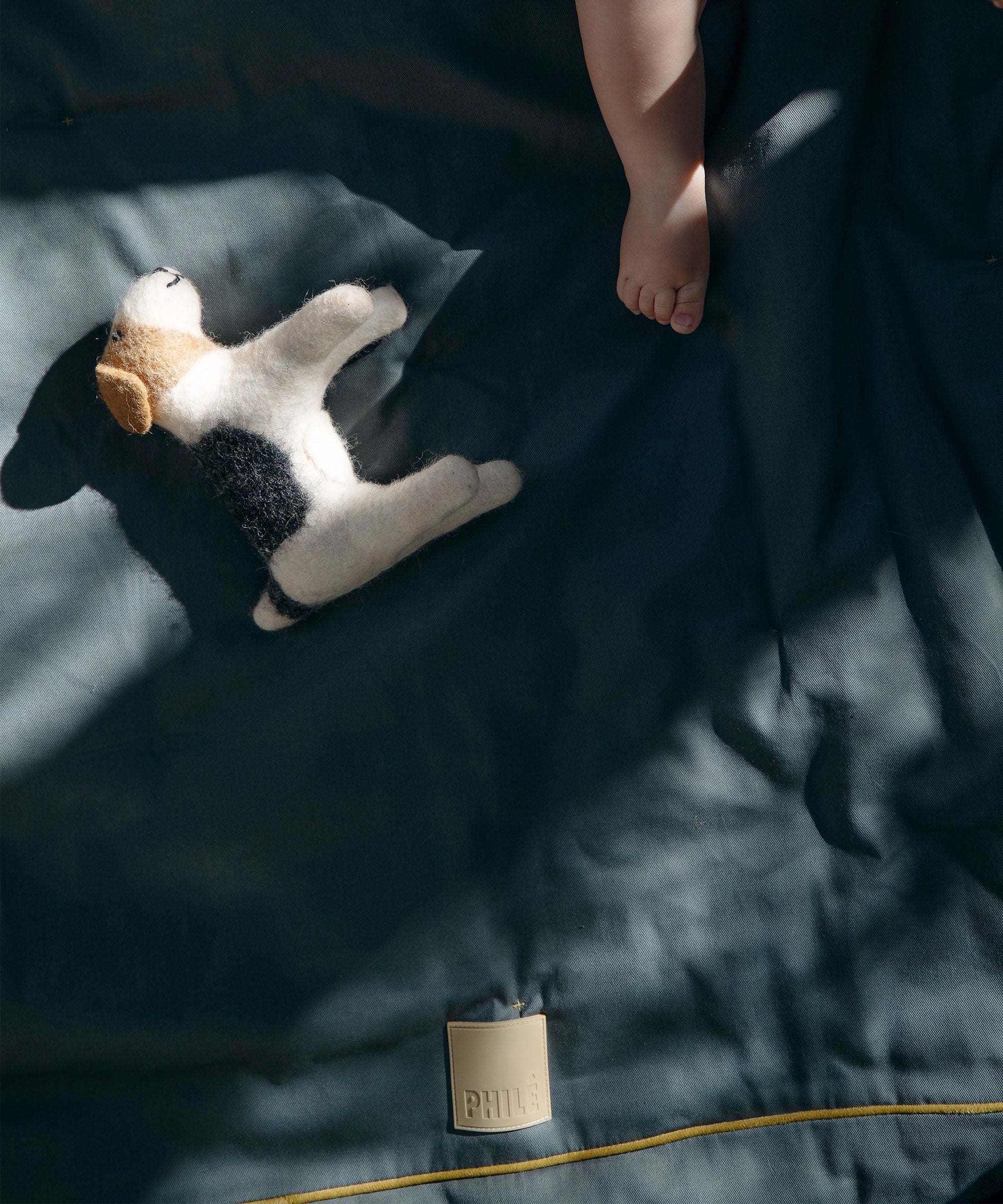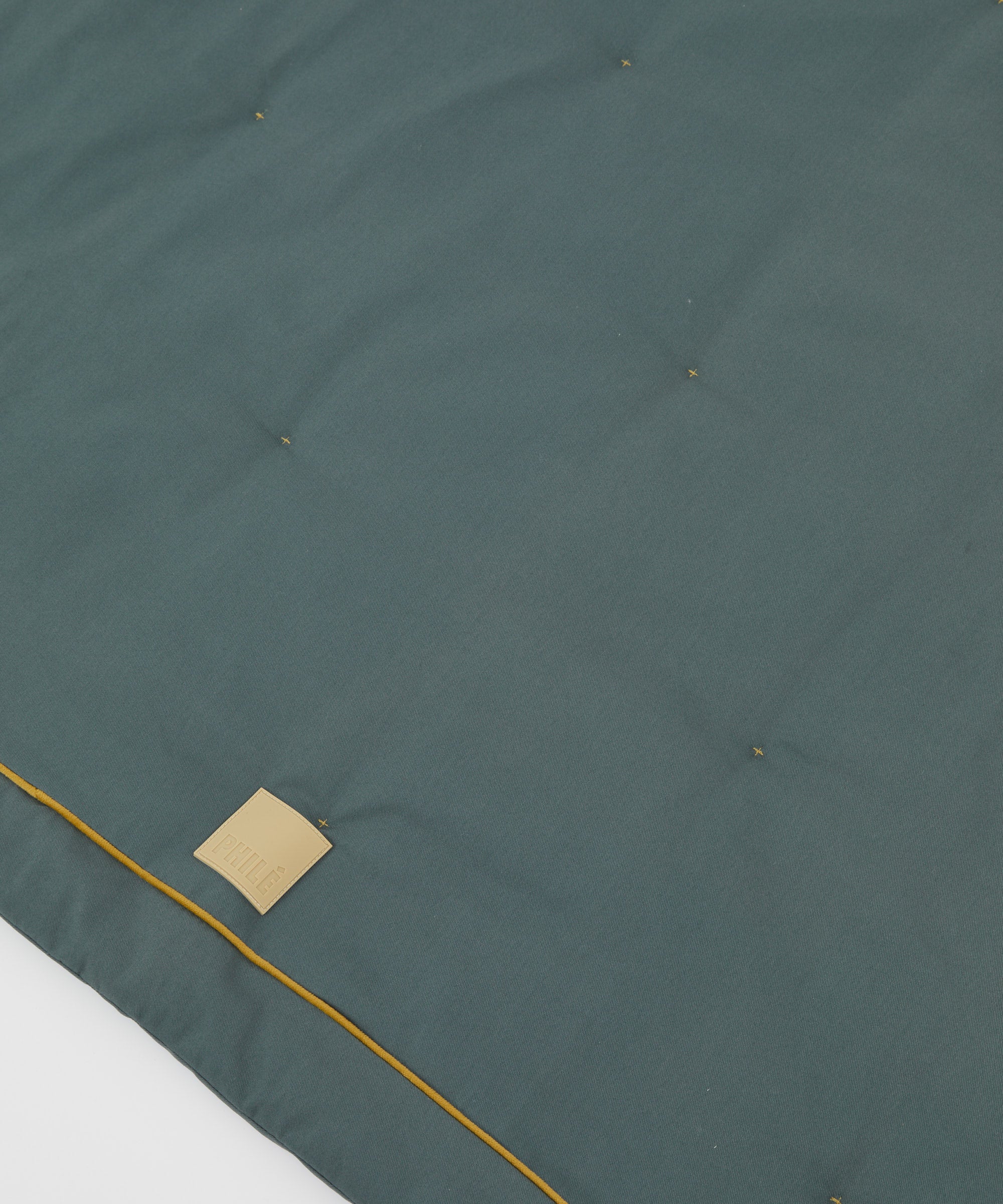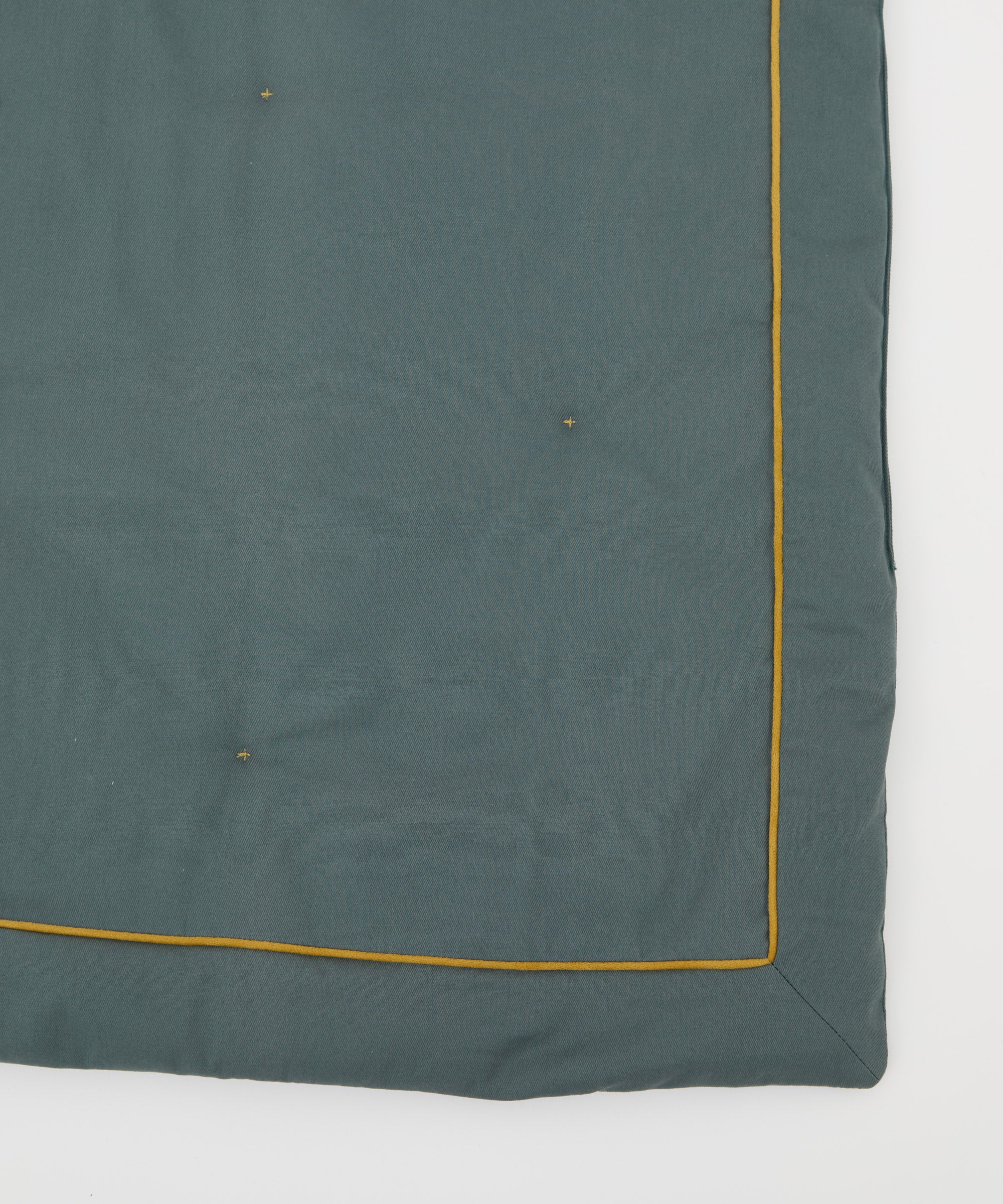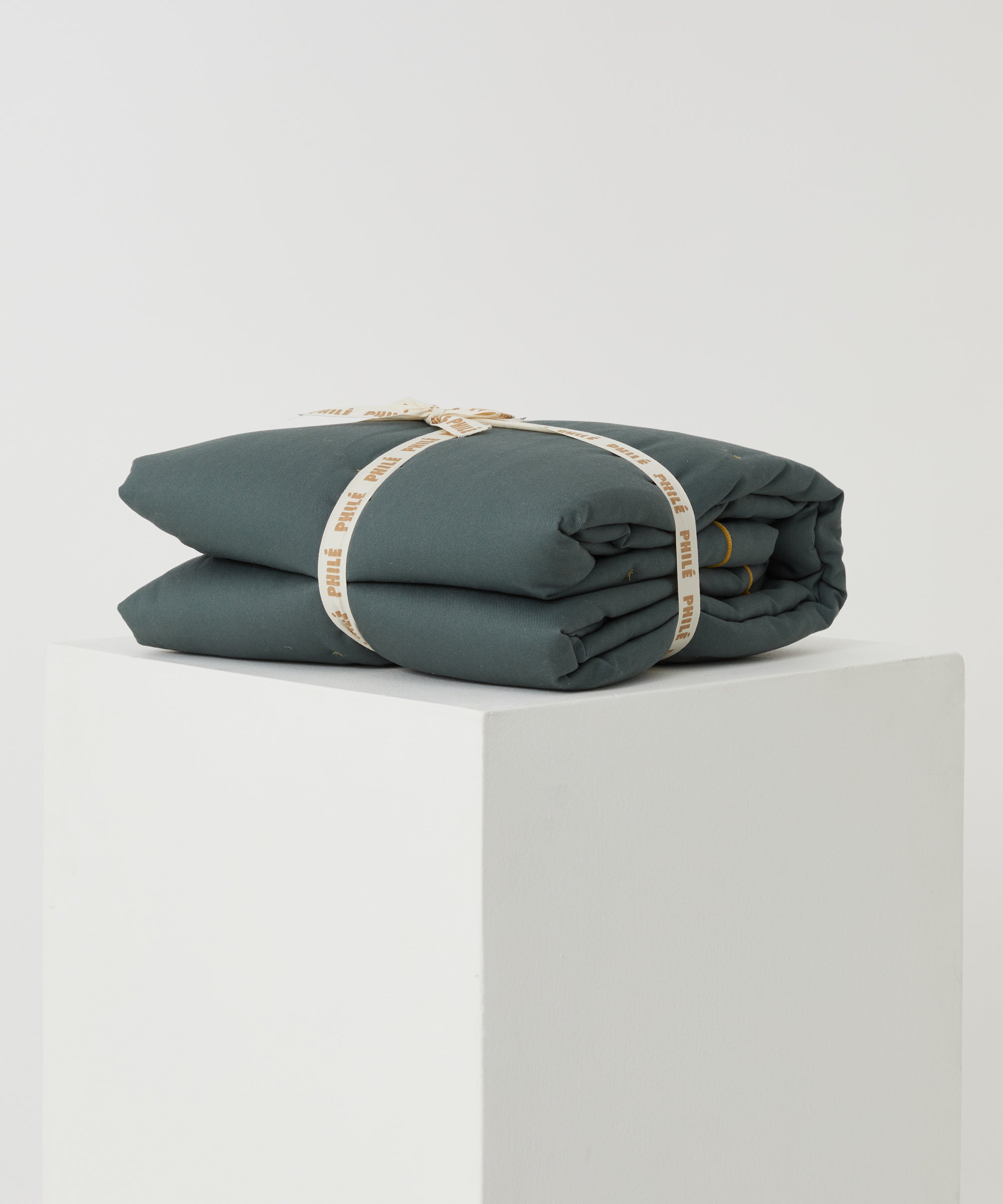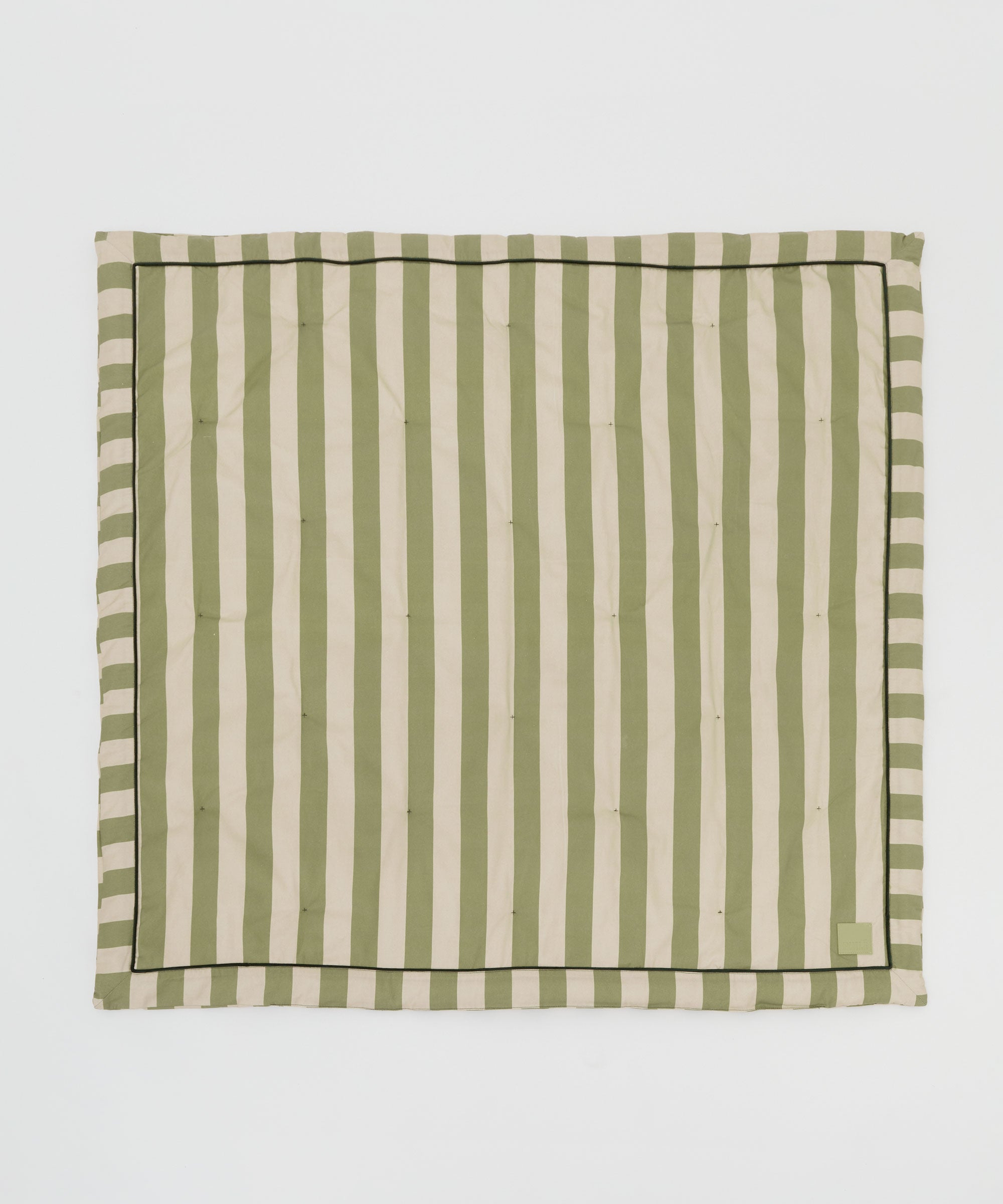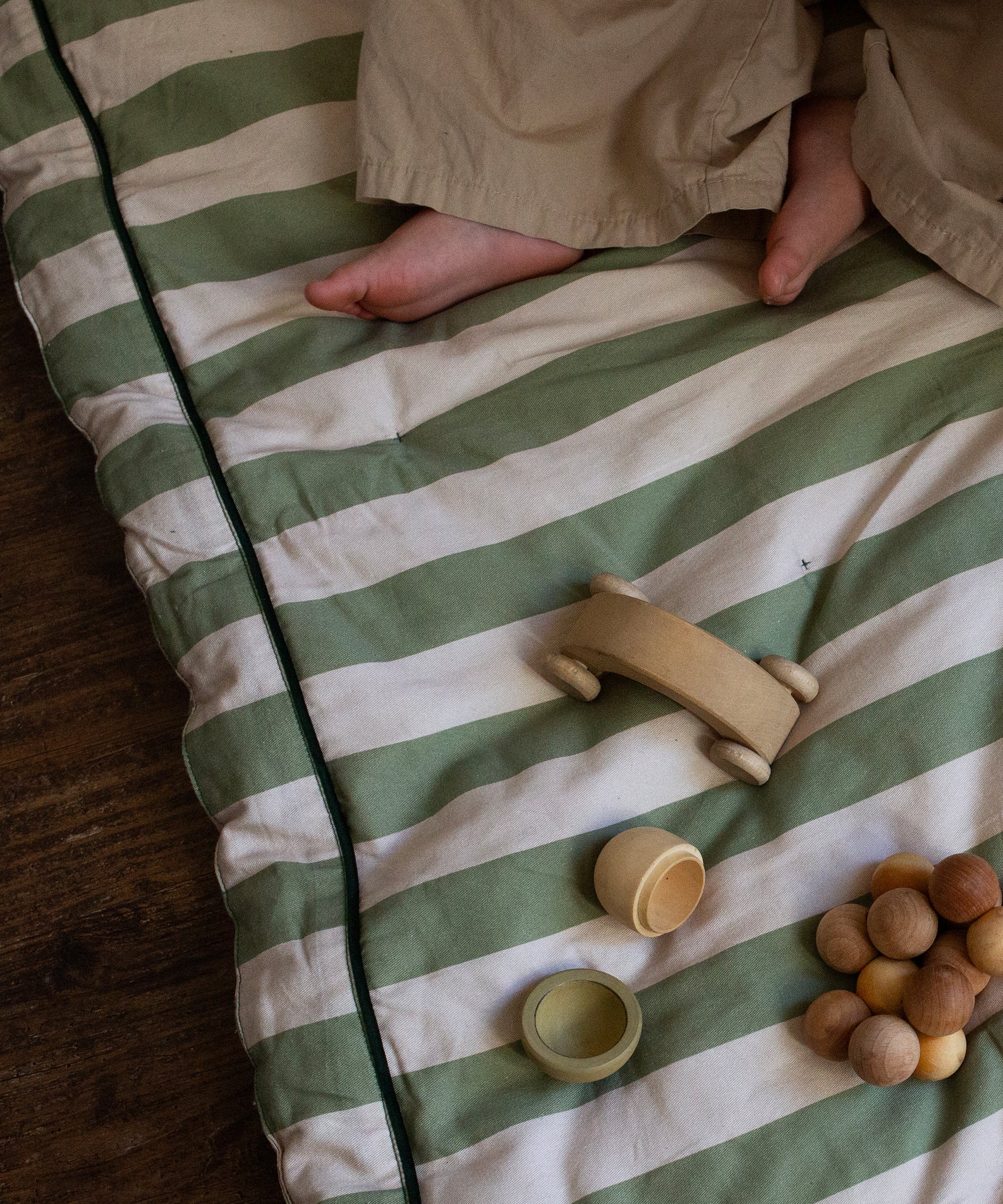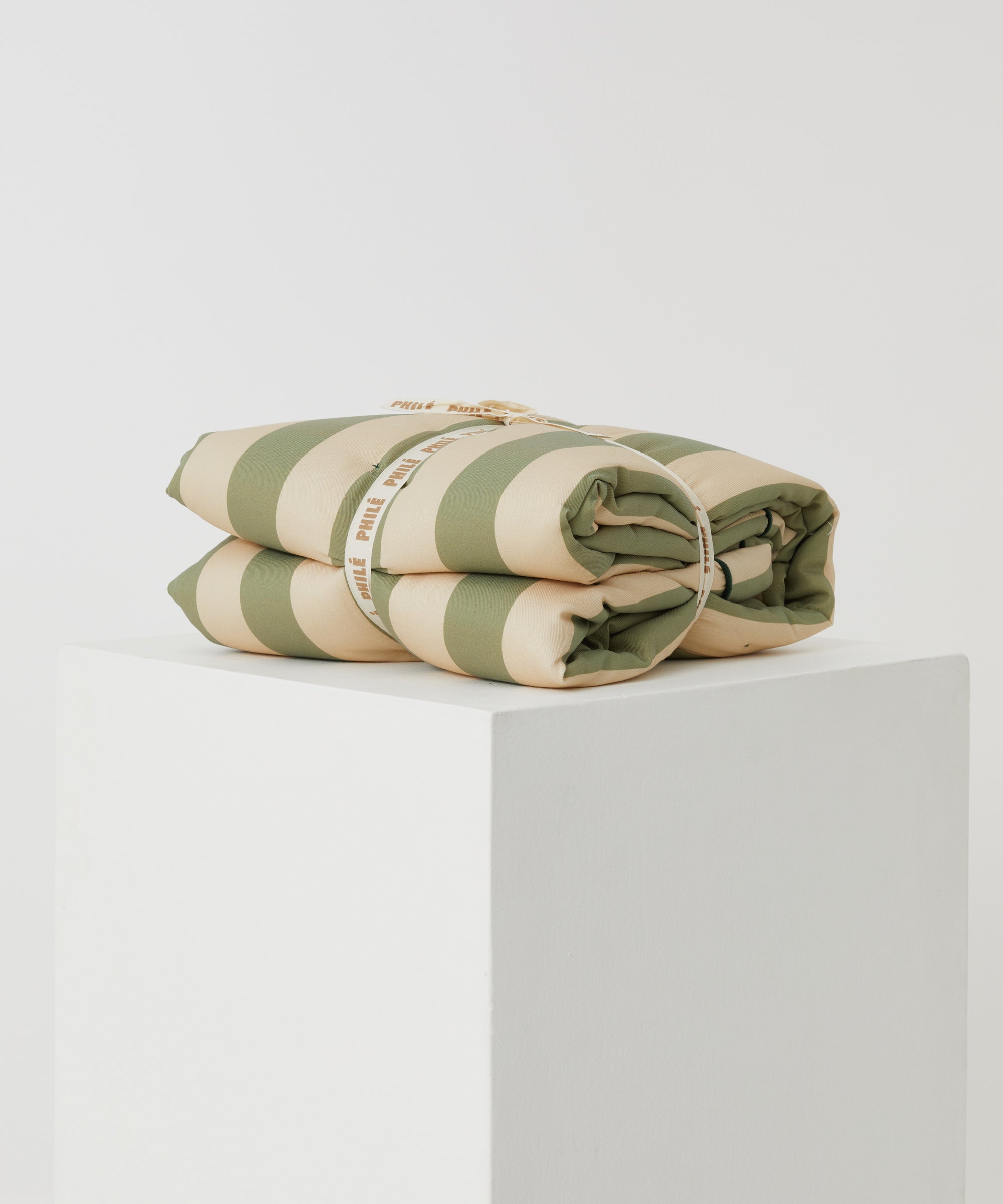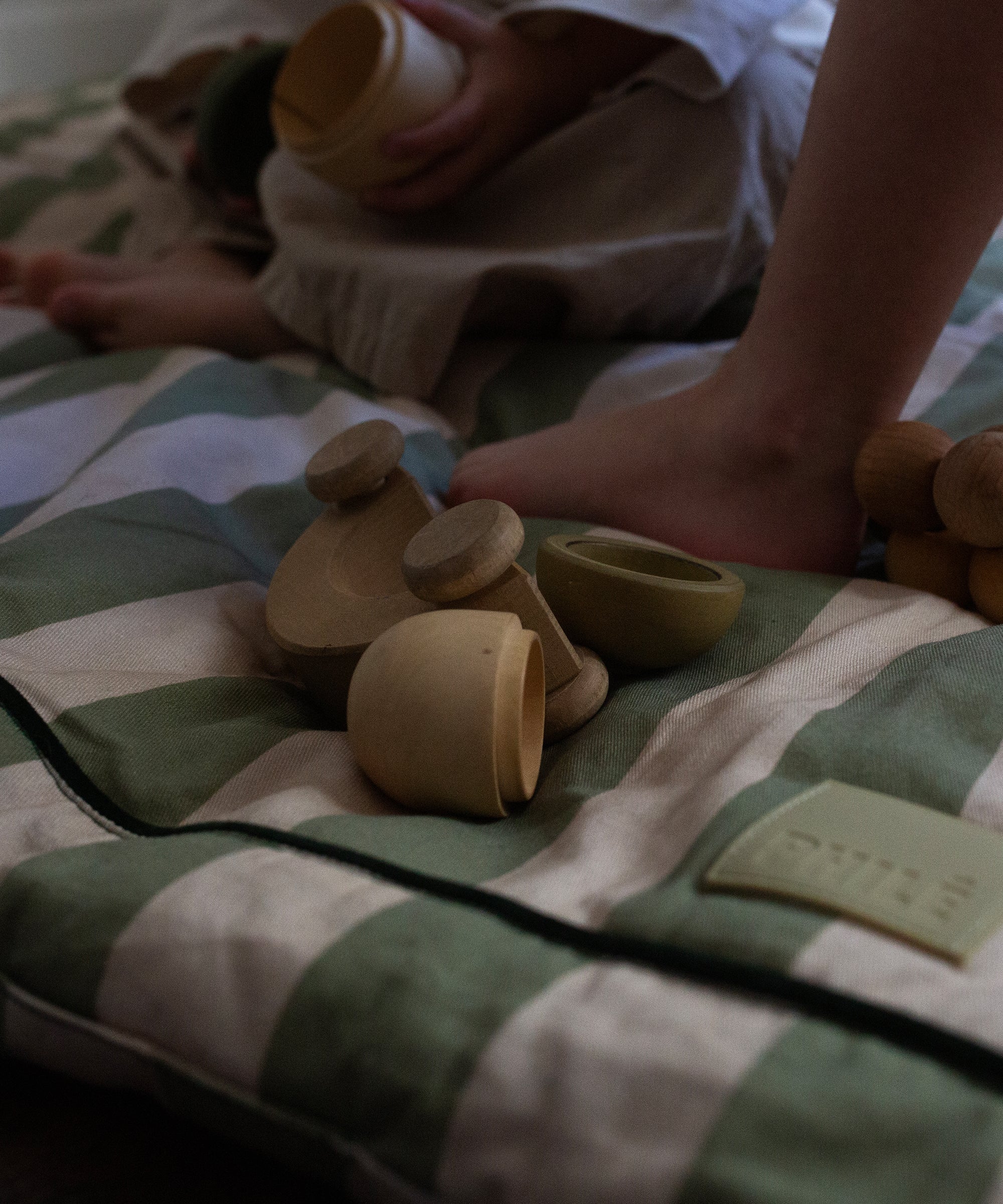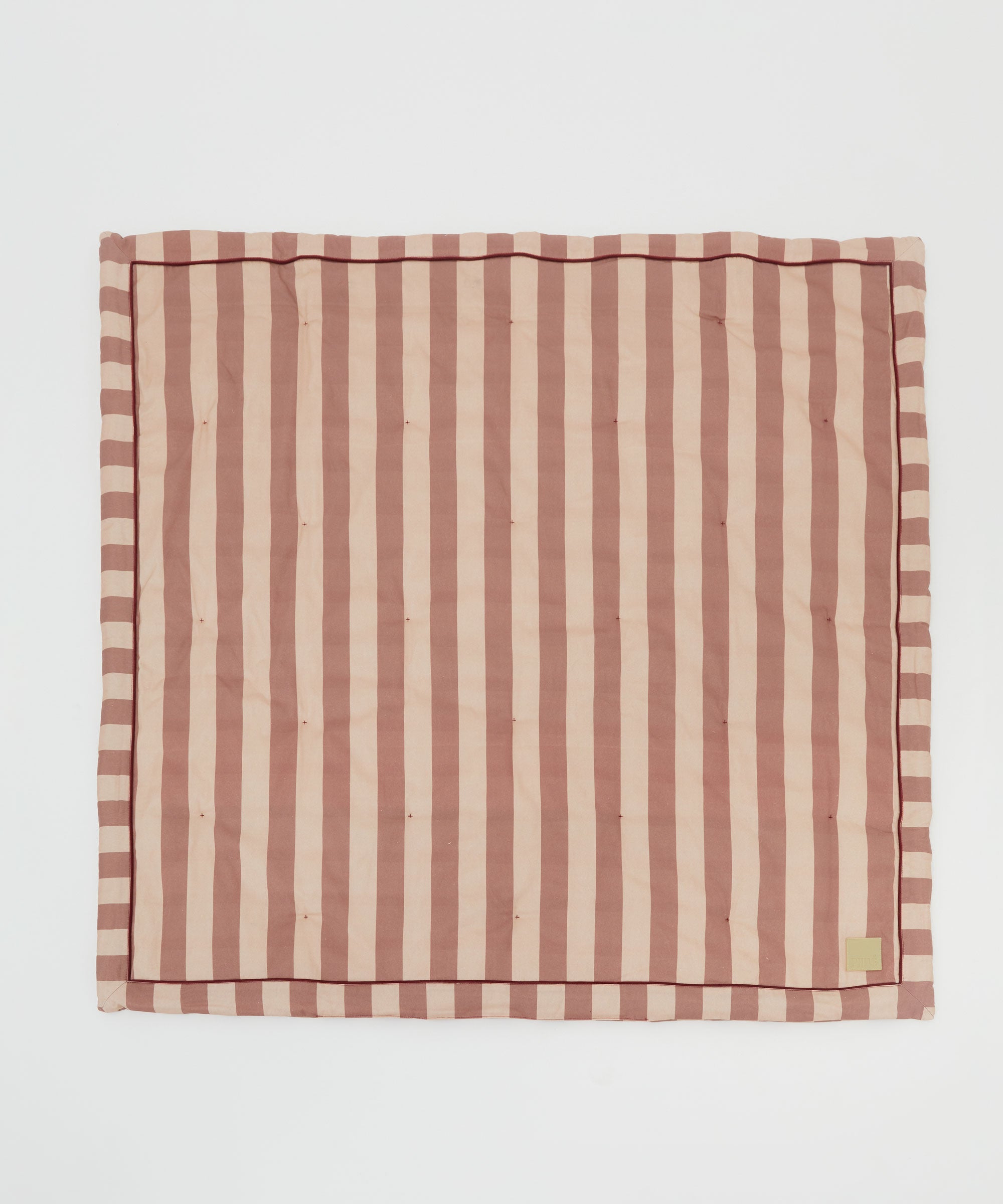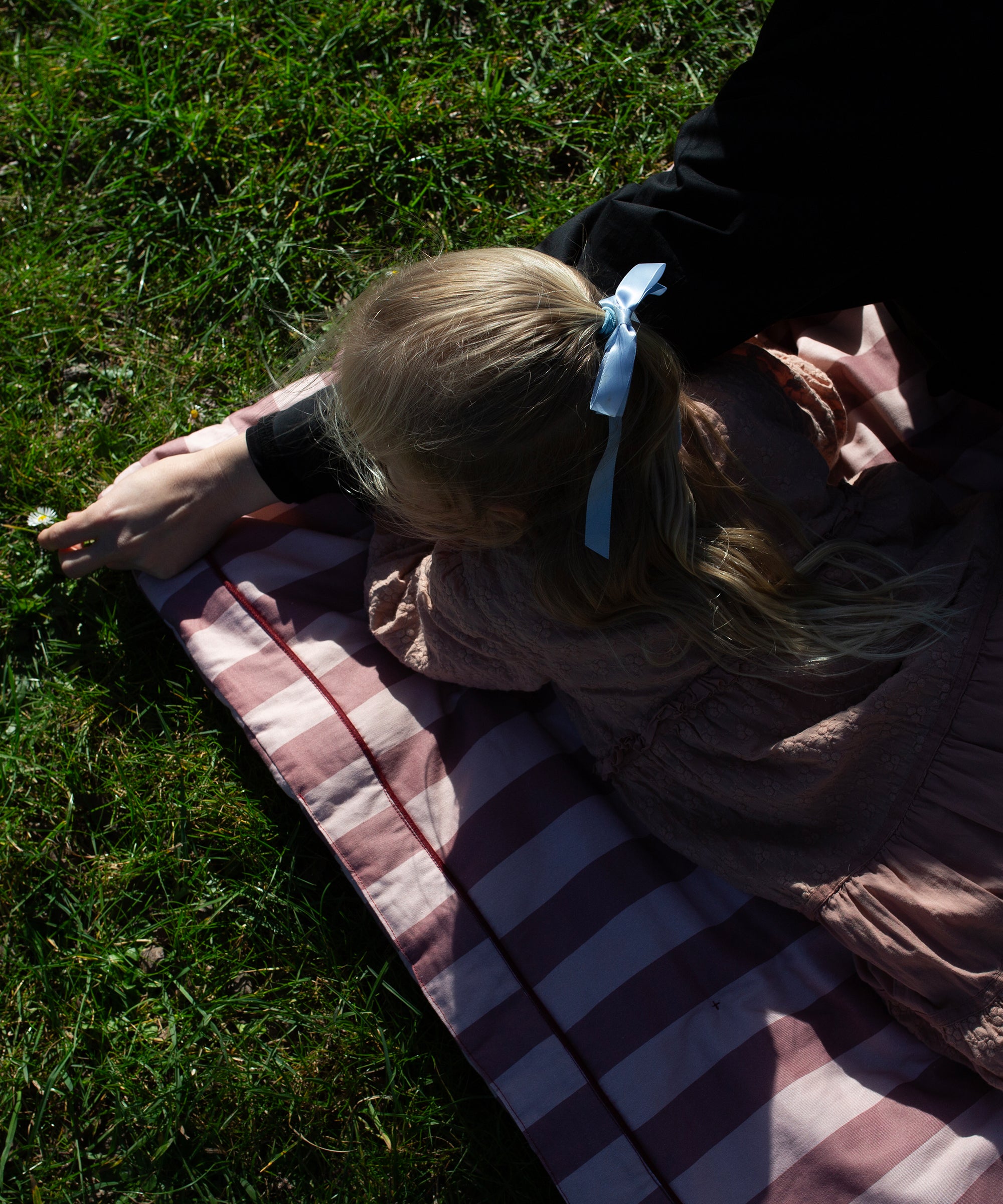A conversation with Sleep Consultant and founder of Snug Co
Isabella Young
We had the pleasure of sitting down with Isabella Young, a Certified Infant & Child Sleep Consultant and founder of Snug Co, to chat all things sleep.
With her calm, practical approach and deep understanding of infant and toddler sleep, Isabella guides parents through one of the most exhausting stages of parenting.
Her advice cuts through the noise, offering clarity, compassion, and real-life strategies that make sleep make sense again. Whether you're navigating the newborn haze or in the thick of toddlerhood, Isabella’s insights are a breath of fresh air for any parent longing for more rest.
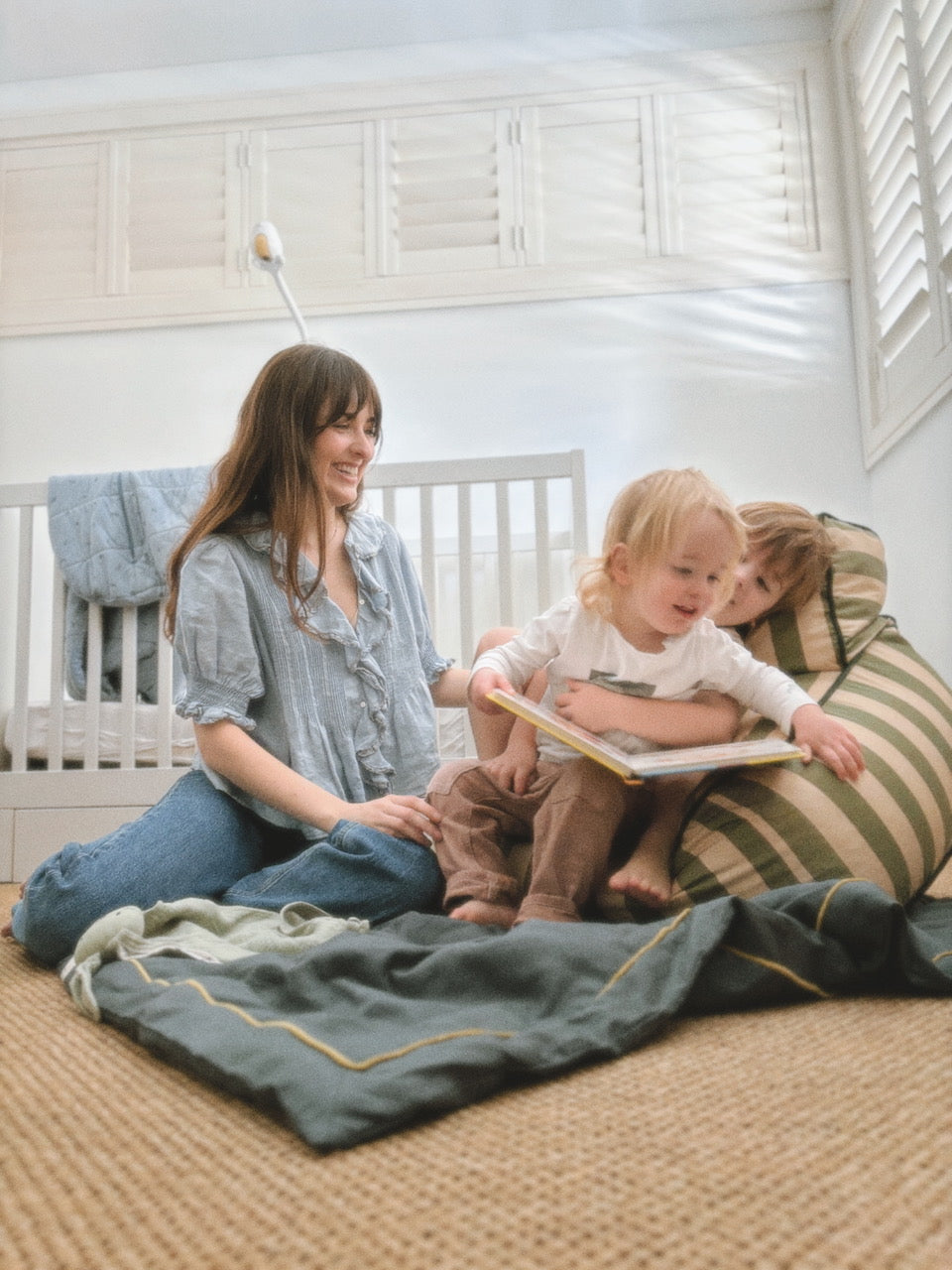
౨ৎ How did your path lead you to specialise in baby and infant sleep?
When I had my first baby, I was floored by how little truly helpful support there was. It felt like I had two options: either let him cry without anyone properly evaluating him, his temperament, his needs, or his underlying medical issues that were missed at the time, or be told I couldn’t or shouldn’t do anything at all, because “this is what babies do and you should be grateful.”
But I was exhausted, and my mental health was taking a toll. I was desperate for something more nuanced, for someone to actually listen to me. Most of the support out there felt either too one-size-fits-all or just wildly overwhelming. And the guilt? Oh, it was loud. Wanting sleep shouldn’t feel selfish. But when the messaging is so binary, either sleep train or surrender, it’s hard not to feel like you’re doing something wrong, no matter what you choose. At the time, I was working in neuroscience, specifically in brain stimulation therapies, where I worked very closely with patients. It taught me a lot about how we process and cope with emotional strain… and also that I tend to carry that emotional load home with me.
My background is in neuroscience and psychology, so really I love the science, but I also needed to feel like I was truly supporting people in a tangible, compassionate way. Somewhere between full-blown sleep deprivation, going back to full-time research in a brain tech startup, and the fog of the 4-month regression, I had this realisation: I could be the support system I had needed. I could get accredited, I could reach out to experts, dive deep into the research, and, crucially, I could deliver that insight to families in a way that actually helped, not overwhelmed. No shame. No rigidity. No one right way. Every consultation I do is 100% tailored. Every plan is modifiable, flexible, and built to fit real families, real babies, and real life.
I’m now working in Snug Co full-time, doing my Master’s in Sleep Medicine to deepen my knowledge even more. And I’m working on something very close to my heart, a soon-to-launch, top-secret project called Novie, which is my way of scaling that support and making it accessible to every family who’s ever felt like I did: stuck between guilt, exhaustion, and not knowing where to turn.
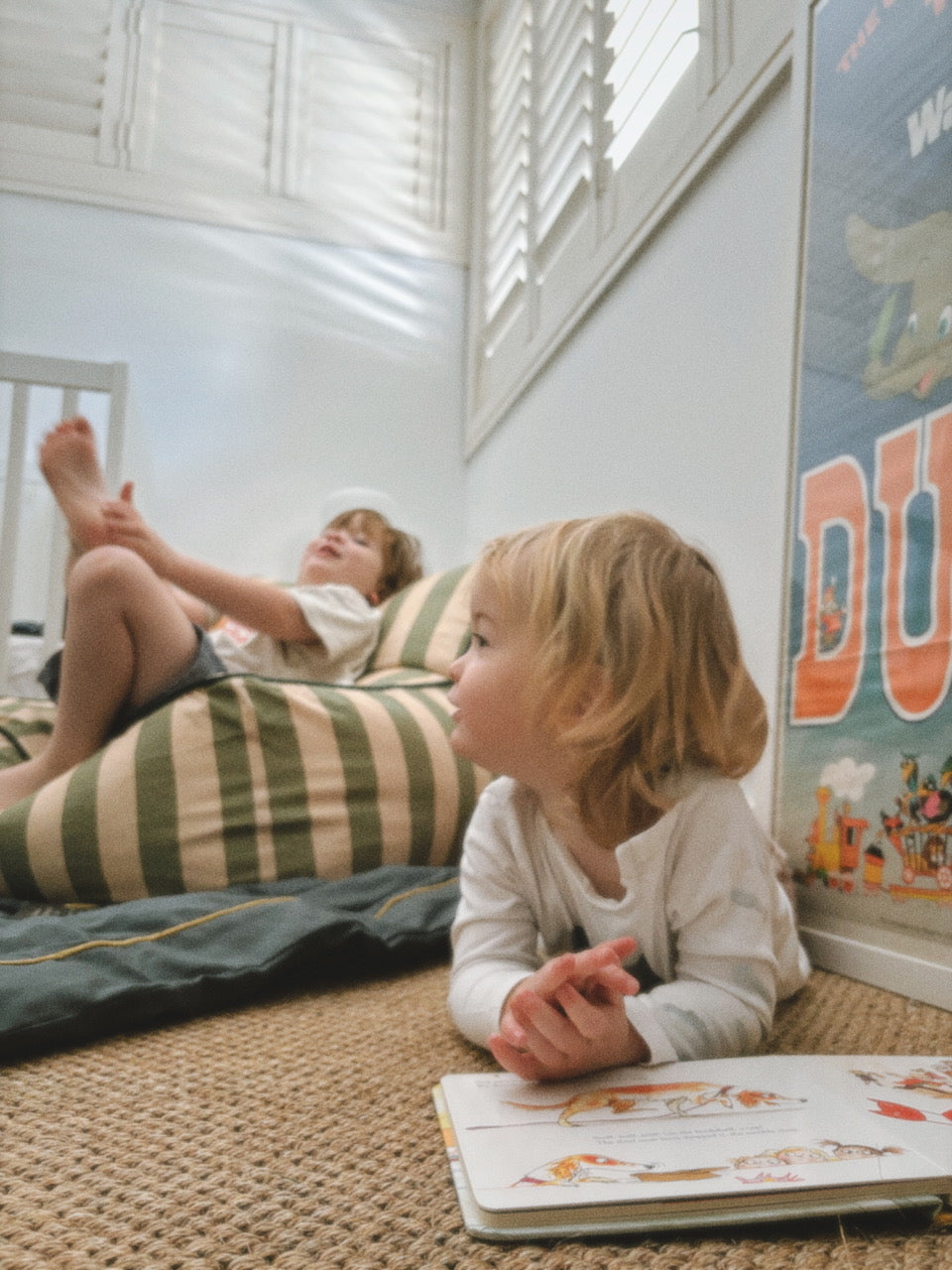
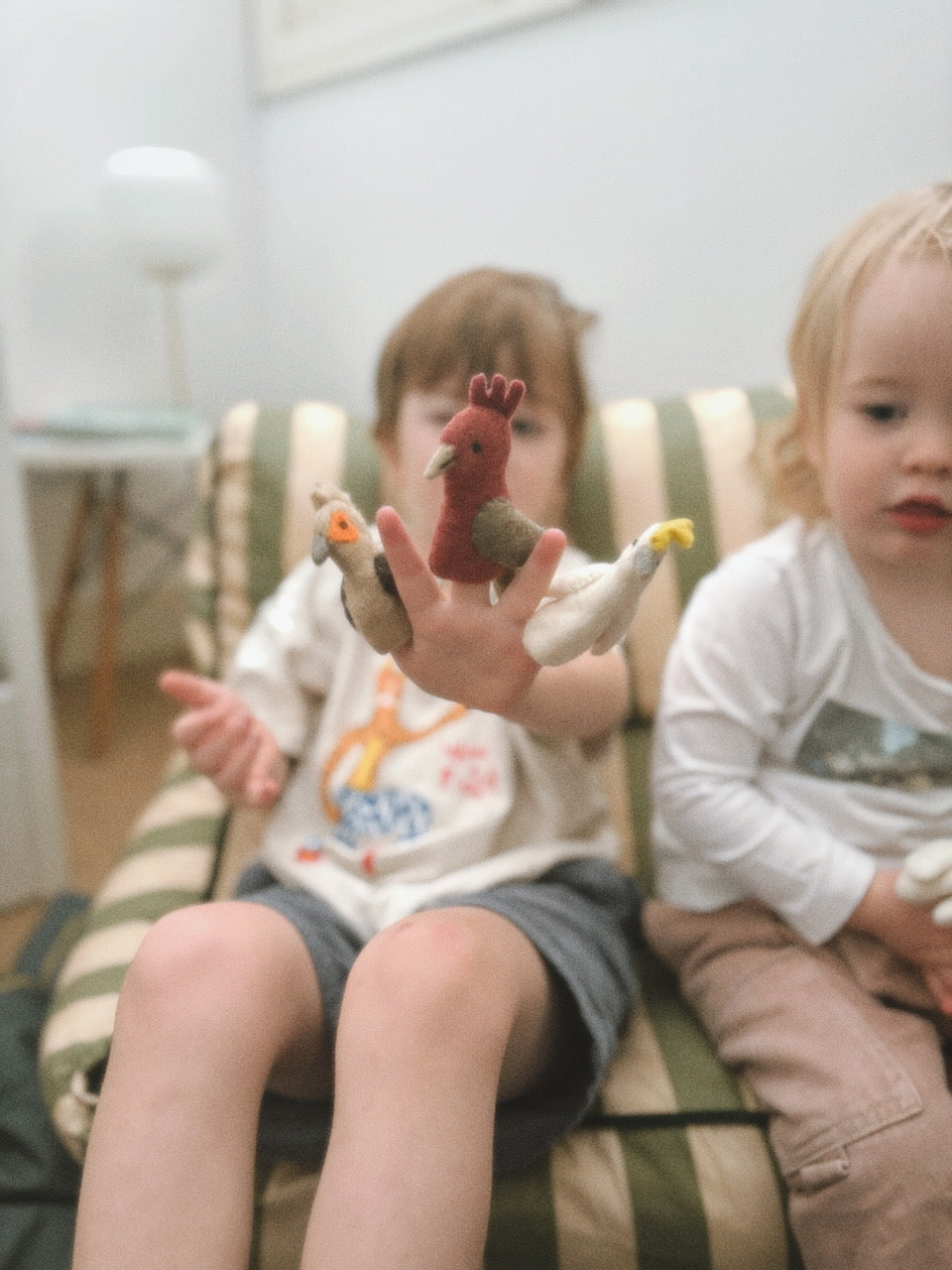
౨ৎ For a new mother whose just arrived home with their newborn - where do they turn to for guidance on sleep (cycles, schedules, establishing a “routine”)?
The shameless plug: Novie is going to do all of this for you, without the overwhelm. So honestly? Keep your baby in until it launches. But until then…don’t panic, and definitely don’t screenshot five contradicting schedules off Pinterest. The newborn phase is biologically quite chaotic. For some families, that chaos creates a dreamy love bubble of couch cuddles and very slow walks. For others, it’s a complete survival zone. Either way, there’s a lot of pressure to learn everything. But the truth is: your baby will tell you more than you think, if you give yourself (and your new connection) the time to learn how to listen. Your job isn’t to implement a schedule. It’s to build a connection and start tuning into their cues. You might begin to recognise the difference between a hunger cue and a tired one. From there, you can gently layer in rhythm, maybe you start waking them around the same time each morning, and then start to offer the first nap at a similar time. Gradually, this flows into more structure across the day.
For the first 6-8 weeks, sleep is highly irregular and fragmented, and that’s completely normal. Don’t try to force a routine just yet. In my opinion? Learn to love the baby carrier. Get outside when you can. And remember: rest isn’t just sleep, it’s lowering the bar, asking for help, and giving both parents permission to not have it all figured out.
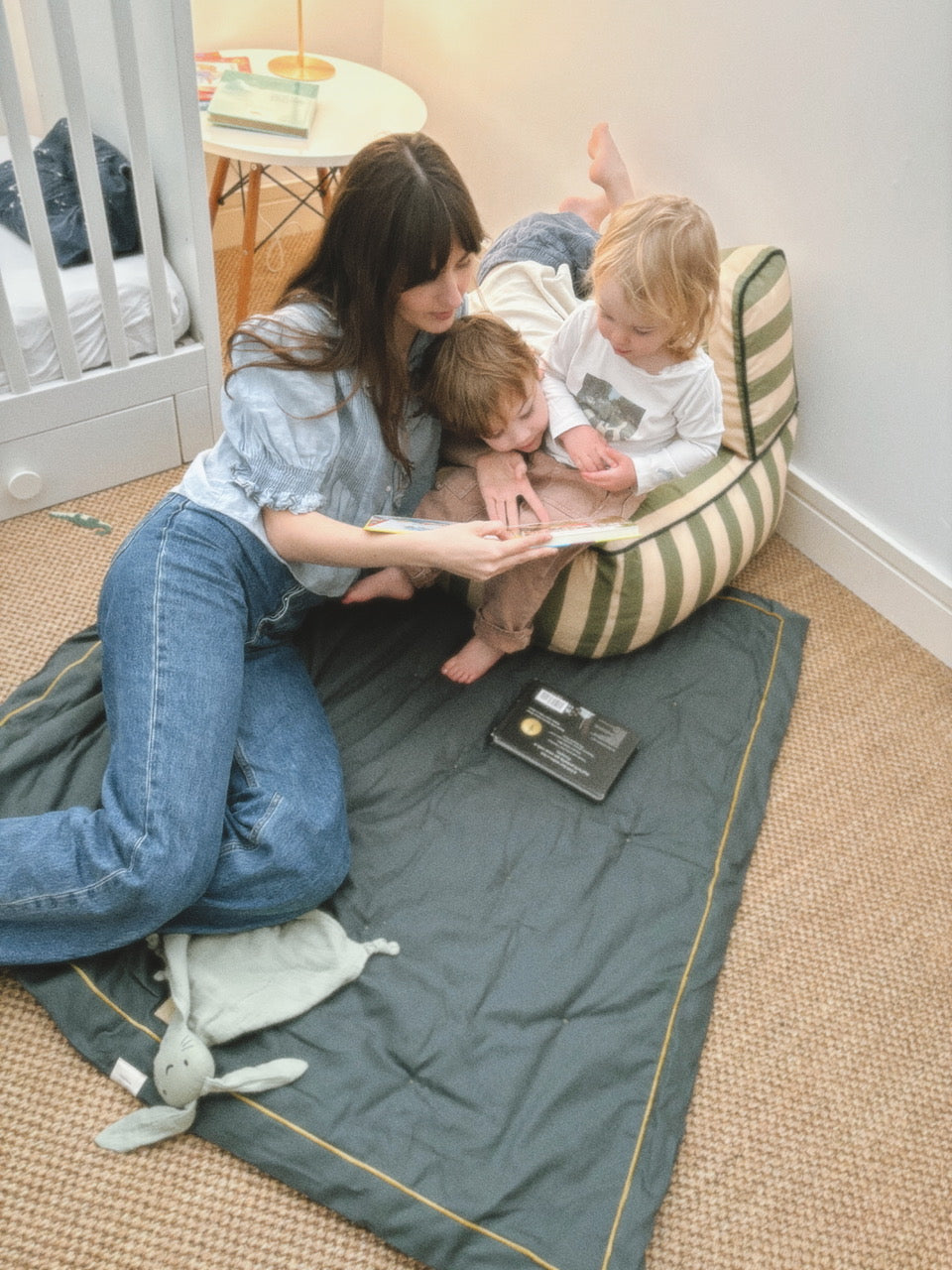
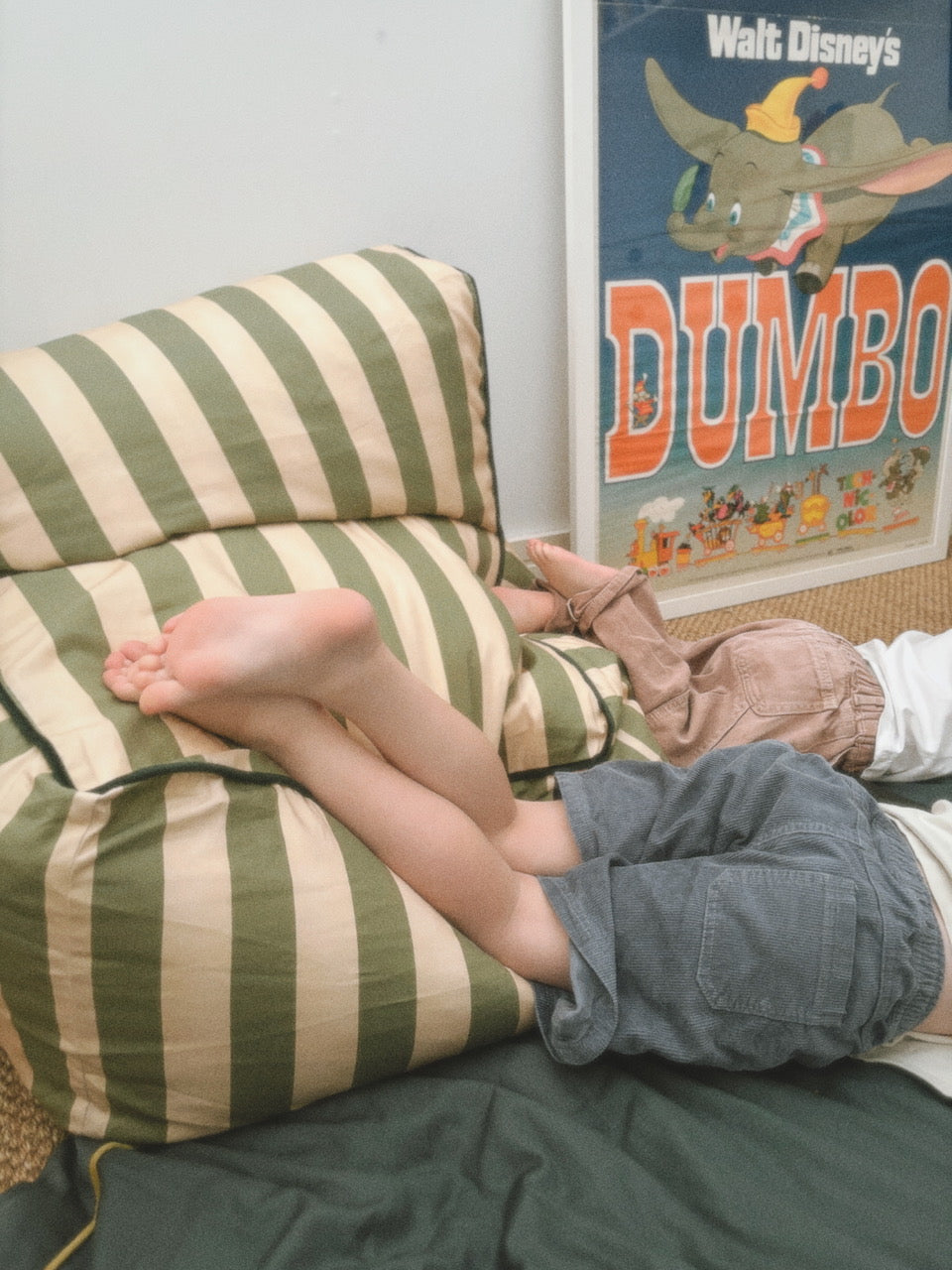
౨ৎ When should I start following a consistent sleep routine?
Whenever you need it, or your baby’s sleep is so all over the place that they need it. There’s no perfect age, but many families start craving more structure between 4-6 months. Around 4 months, the chaos can start to wear thin. But from a biological perspective, things tend to stabilise a little more around 5 months: circadian rhythms are matured, sleep cycles are established, and babies are often naturally starting to show more predictable days and nights. The great news? You don’t need to be tied to a rigid schedule. A consistent wake-up time and a couple of flexible nap anchors can go a long way in helping sleep become more predictable (and less of a mystery). And if it’s before 5 months and you’re already craving some rhythm, that’s totally okay. You can start gently shaping the day without expecting it to stick just yet.
౨ৎ In your experience, what are the most common reasons that a baby isn't sleeping?
Honestly? They’re just not tired enough. Babies who haven’t had built up enough sleep pressure by spending time awake are harder to settle and more likely to wake frequently, both from naps and overnight. But social media has made so many parents petrified of over-tiredness. And I get it, no one wants an overtired and frustrated baby.
But once babies are out of the newborn stage, over-tiredness is rarely the root of every sleep problem. To make things more confusing, overtired and under tired babies often show very similar signs, short naps, frequent wakes, false starts, and early rising. So, I completely understand why parents are protective of keeping their children awake for too long.
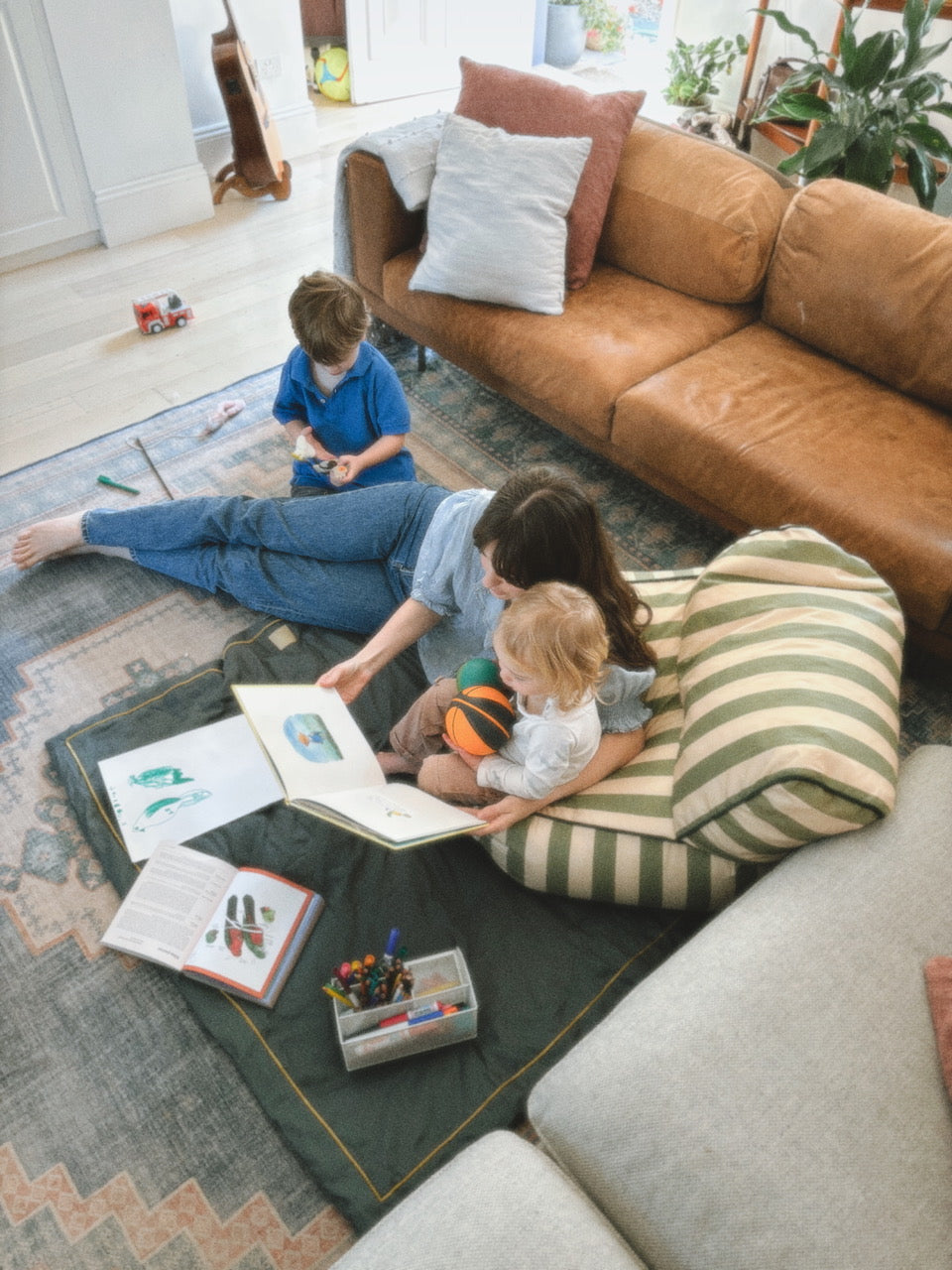
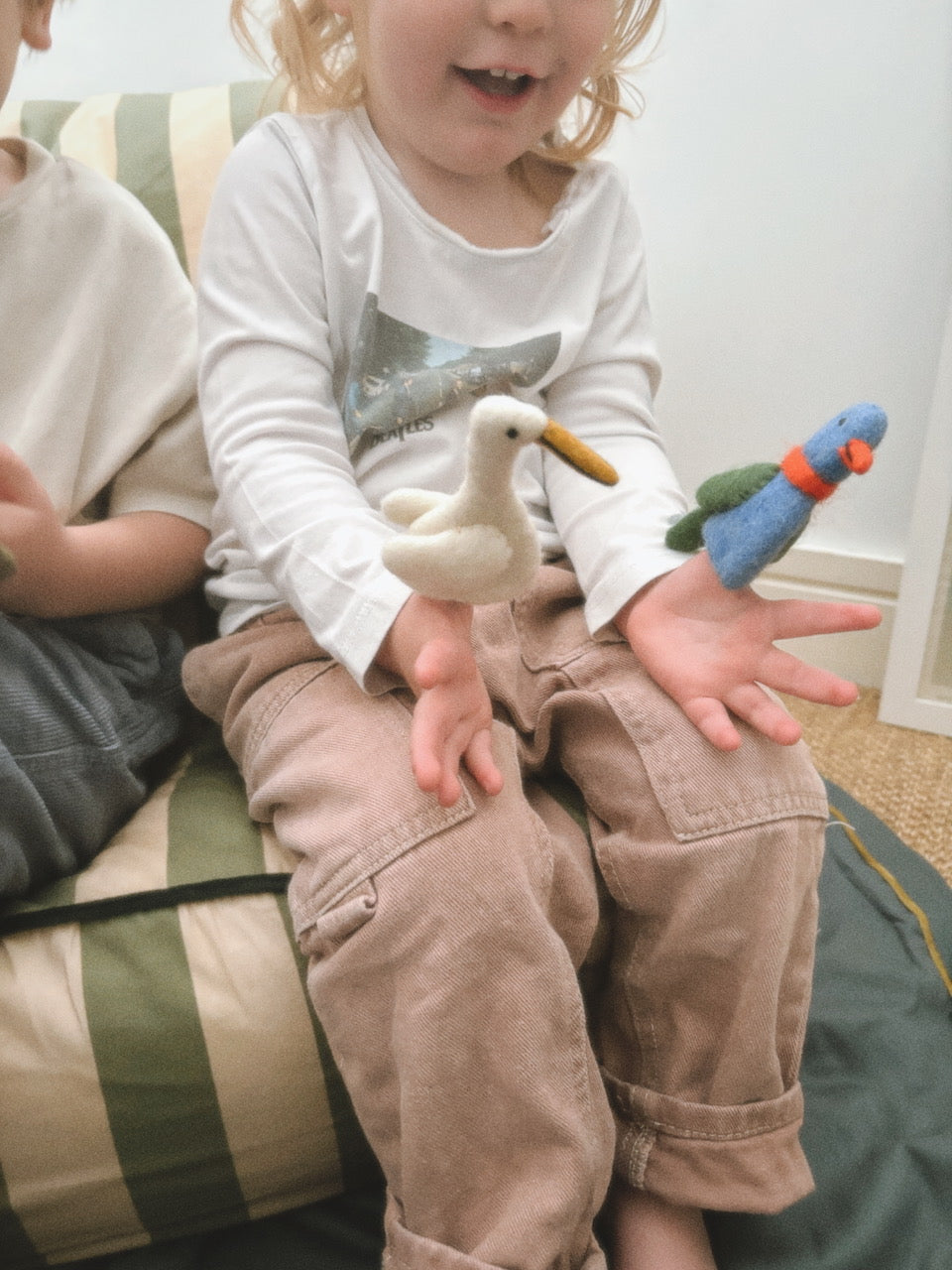
౨ৎ Go to products to support baby's sleep?
Blackout blinds and breathable sleepwear are the universal recommendations I make to most families. Darkness helps to reduce visual distractions that can keep your baby awake. Plus, in the evening, babies and adults alike need to dim their sleep environments to support efficient melatonin production, which allows them to fall asleep.
Breathable sleepwear made from natural fibres like cotton or bamboo helps regulate your baby’s body temperature, which is important for both comfort and safety. Overheating is a known risk factor for SIDS, and babies sleep best when they’re warm but not sweaty.
For newborns, I really do love a muslin swaddle. It can dramatically improve sleep for most babies by reducing the startle reflex, which might wake them up if they’ve just drifted off. Muslin wraps are also endlessly useful, perfect as makeshift play mats, light blankets in the pram or burp cloths.
For older babies, I love introducing evening-only toys or books that they love. Having a few special items that are just for the bedtime routine can help make the transition to sleep feel more engaging and reduce the resistance that often pops up around bedtime.
౨ৎ Should you wake your baby to feed at night?
If your doctor has recommended it, of course! Otherwise, most healthy babies will wake when they’re hungry. So if they’re sleeping well, you can sleep too. Trust their cues, and grab that rest when you can.
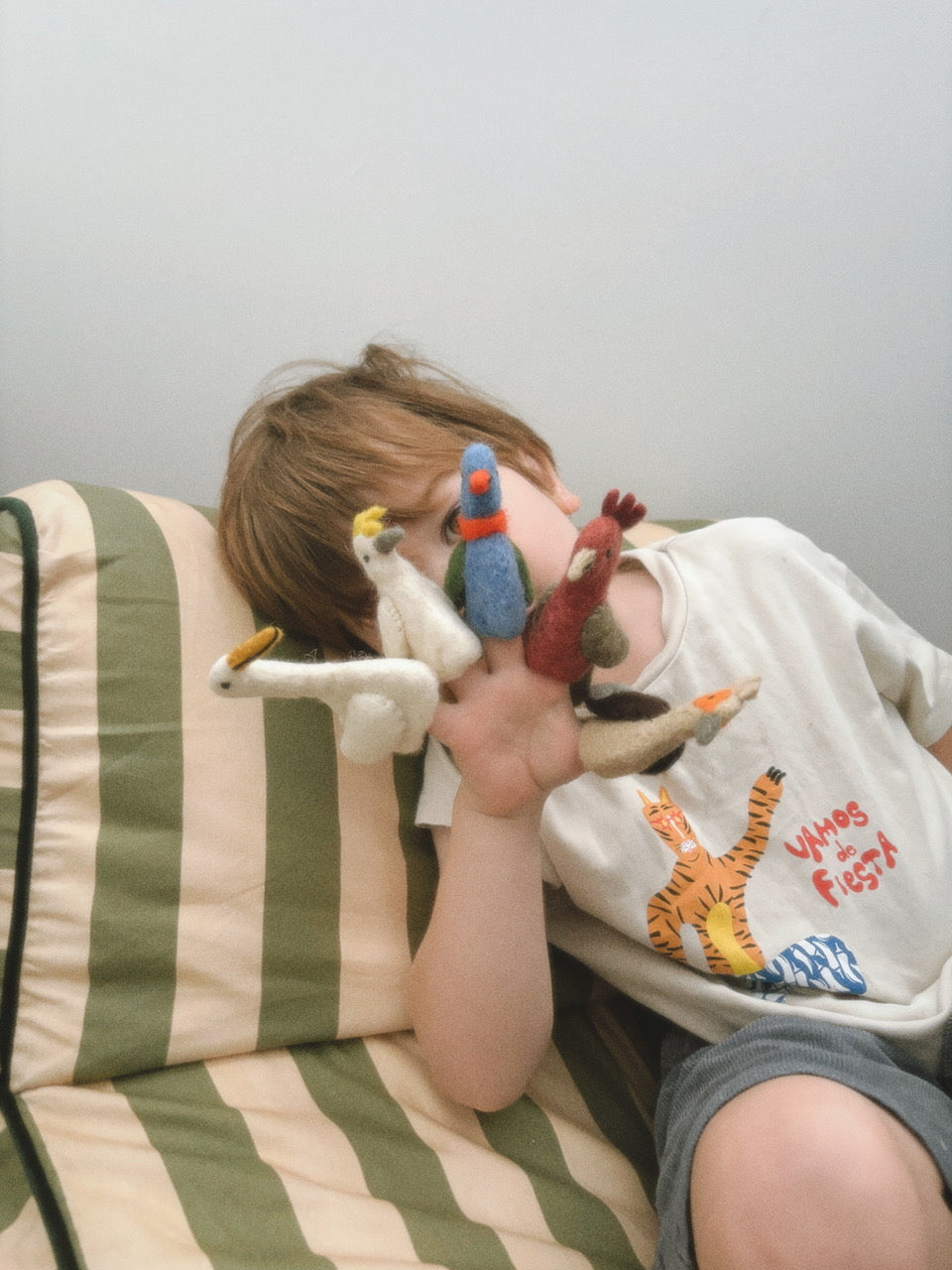
౨ৎ What are your go to settling techniques?
This is one of those “it depends” questions, and for good reason. Every baby is different, and what works for one might be completely wrong for another (or for the parent). That’s why I always tailor settling strategies to the baby’s age, temperament, sleep environment, and the family’s preferences and bandwidth.
My go-to technique? Whatever’s already working for the family. Honestly, the vast majority of parents I work with are feeding to sleep, and in many cases, we keep that. Feeding to sleep is not only biologically normal, it’s often a welcome moment of calm in otherwise long, overstimulating days. Rather than changing it for the sake of it, we might adjust other parts of the sleep puzzle first, like nap timing, sleep pressure, or bedtime routine. When families do want to move away from how they’re currently settling, whether that’s feeding, rocking, or bed sharing, that’s where the approach becomes even more personalised.
Some families want structure and quick progress, so we might use a traditional method like Pick Up, Put Down, offered, of course, in a way that’s tailored to their baby’s temperament and what they’ve already shown they respond to. But most families I work with are deeply tired, emotionally tapped, and don’t have the capacity for a big, sweeping change. That’s where backward-chaining becomes such a helpful tool. This takes their current settling method and breaks it down into approachable, realistic stepping stones towards their desired settling method. It’s more flexible and adaptable, and gives parents a clear sense of both where we’re starting and where we’re heading, without the pressure to change everything overnight. There’s no one right way, only what feels manageable and aligned for each baby and their family.
౨ৎ What are your top tips for parents to manage sleep deprivation?
Sleep deprivation is brutal. I think one of the hardest parts is when it drags on past the newborn stage, and you’re somehow expected to function like a normal person but you’ve been sleep deprived for months or years on end. The household unit is meant to juggle working, keeping the house somewhat running, maybe you have other children. It’s a lot.
I keep it really simple when you’re in the depths. And I say this as someone who has been in the depths, with both of my kids. Even when you know how to improve sleep, there are times when you’re dealing with curveballs you can’t fix overnight. Allergies (don’t get me started on the 18 months of no sleep we endured!), teething, illness, regressions, childcare bugs, your own mental load, sometimes you’re just in it. The standard advice still matters; lower the bar, ask for help (even when it’s hard), make sure you’re fed, hydrated and getting outside when you can. But I also believe in things that are technically not great sleep advice, but really help your sanity. If your baby is up for a long stretch overnight? Watch your reality TV show together at 2am. You may as well catch up on Love Island if you’re going to be awake. If you’re stuck contact napping for hours? Chuck in an headphones and listen to your favourite podcast. Even better, every few naps - put them in the pram or carrier and get outside while they sleep. Maybe the nap isn’t as long, but you got outside.
Choose the path of least resistance. If the choice is between rocking your baby to sleep in 10 minutes or trying to “teach” them to self-settle for an hour (while resenting everyone involved), go with the quicker, calmer option. You can always change the plan later, when you’re not running on fumes. Sleep deprivation doesn’t just affect your energy, it chips away at your identity. So anything that makes you feel more human, less isolated, and more in control? That absolutely counts as a survival strategy. And survival mode is still parenting. If you’re in the depths right now, I really see you. One day, this will feel like a blur, but today, it’s real, and it’s hard. You’re not doing it wrong. You’re just doing something really hard.


